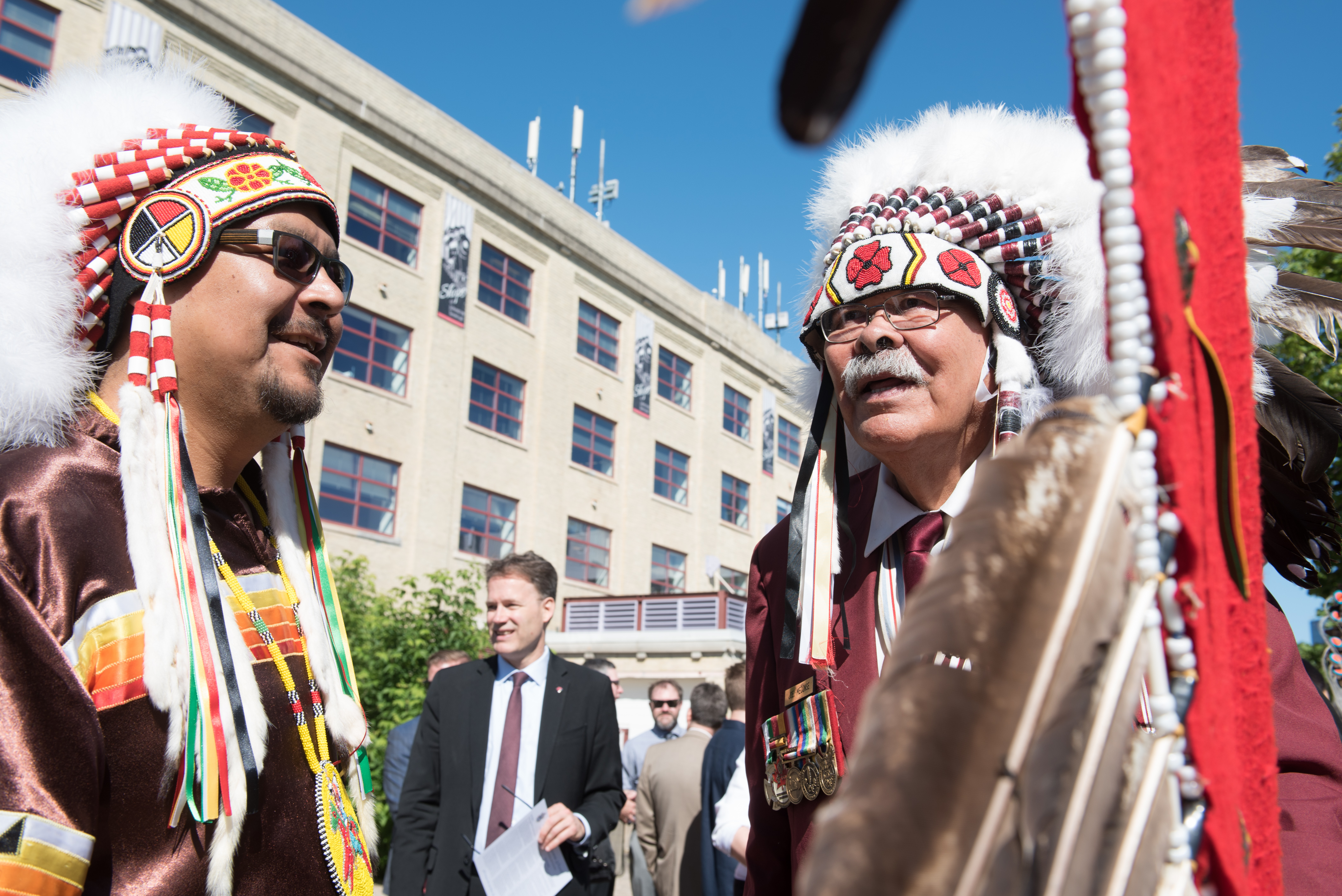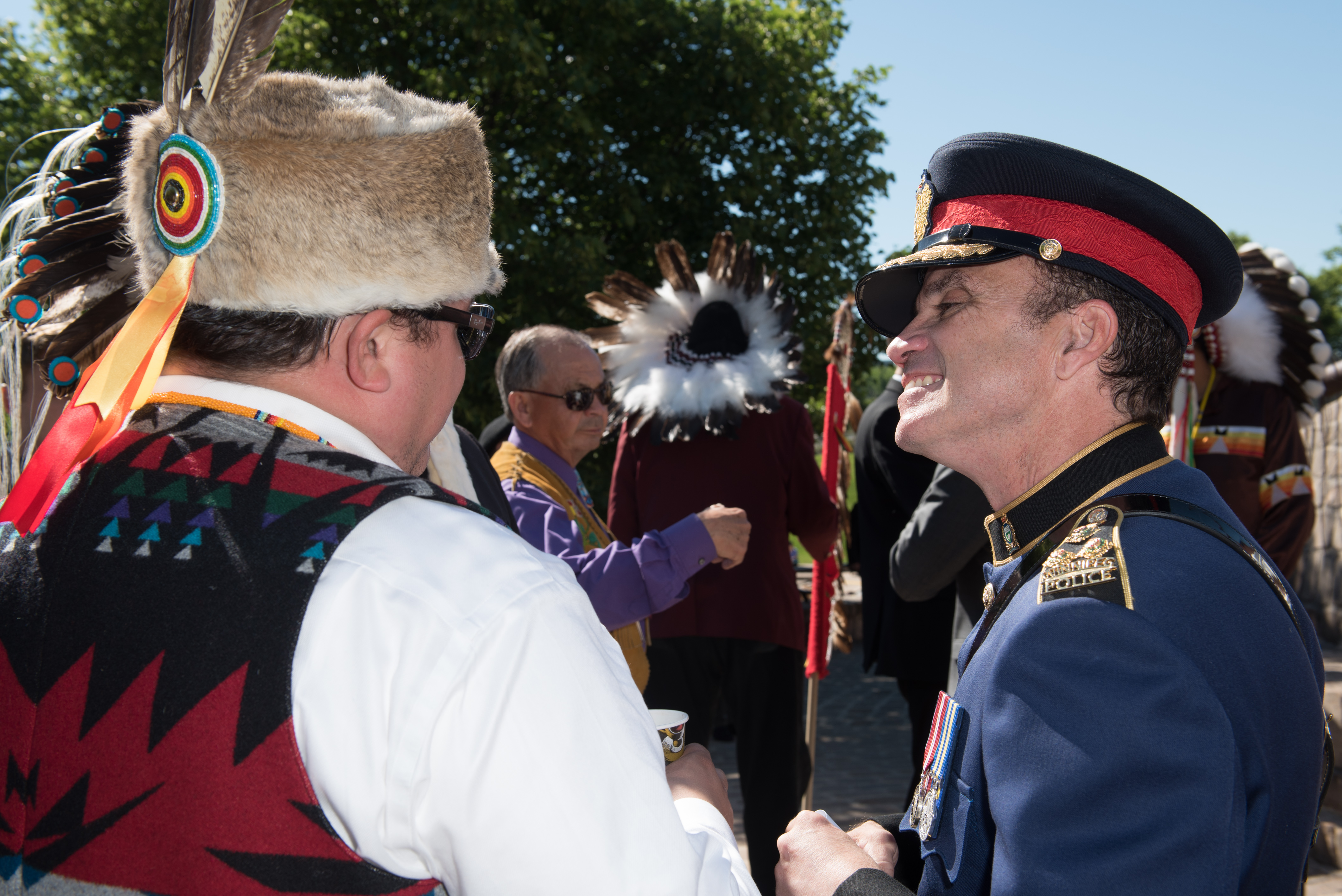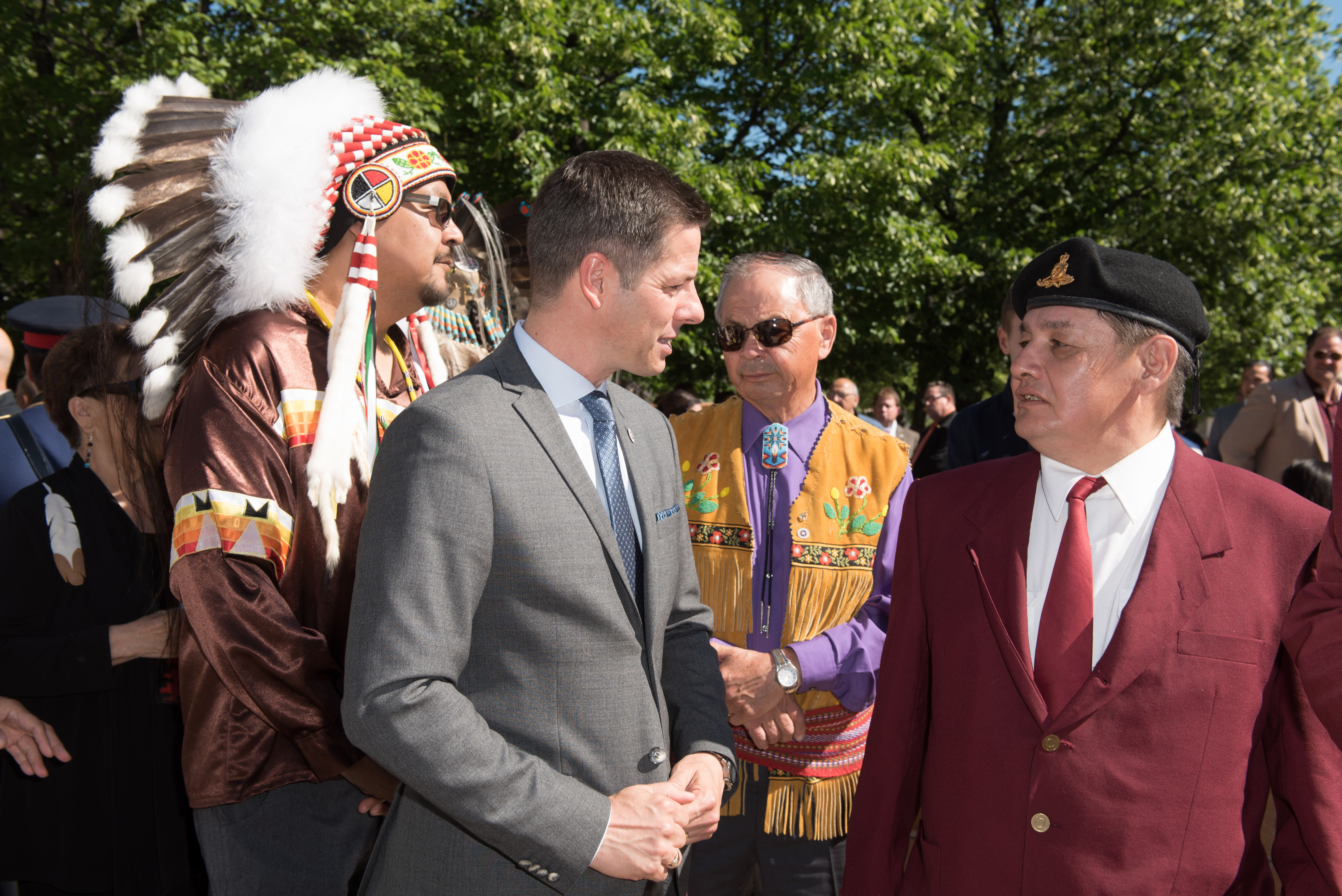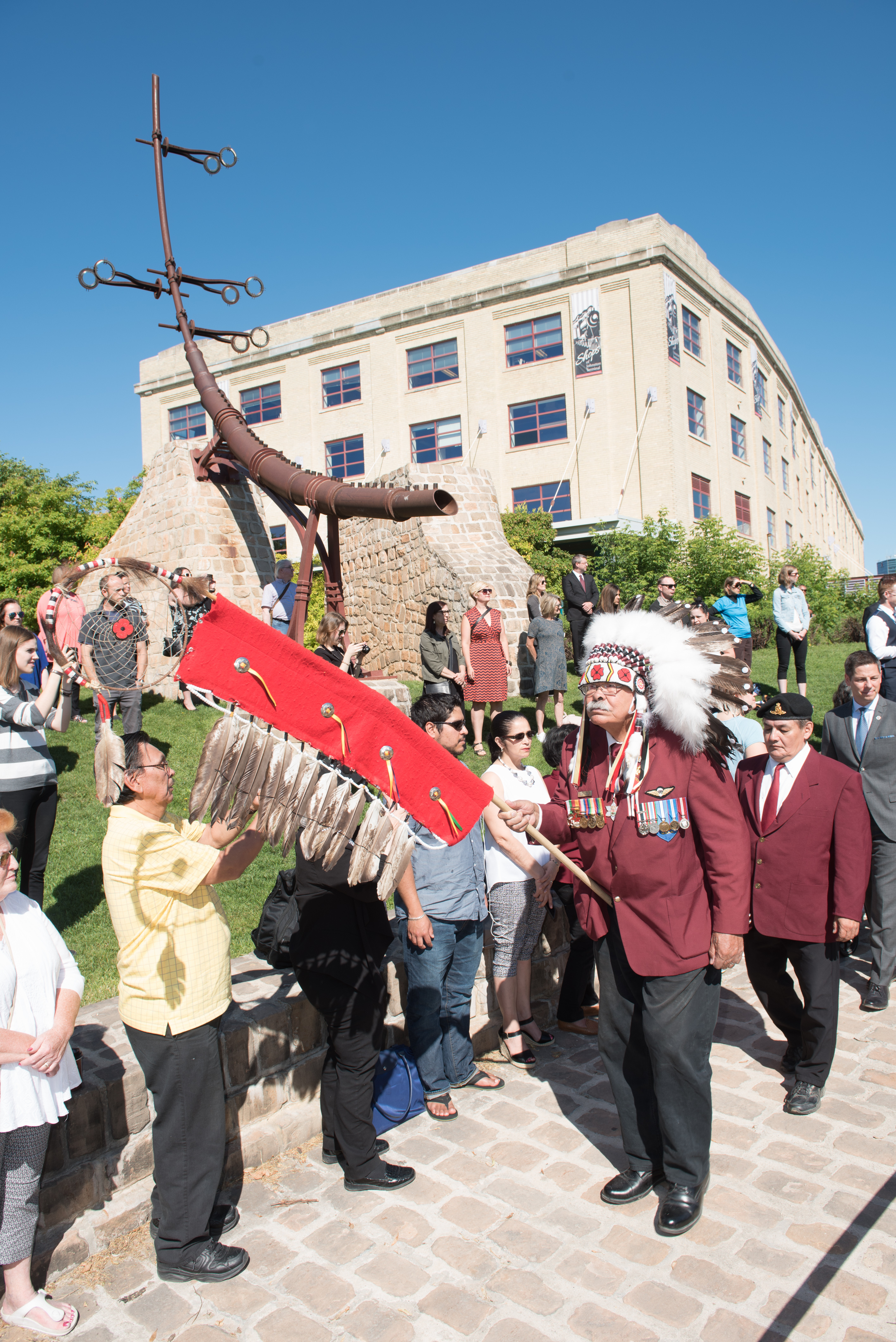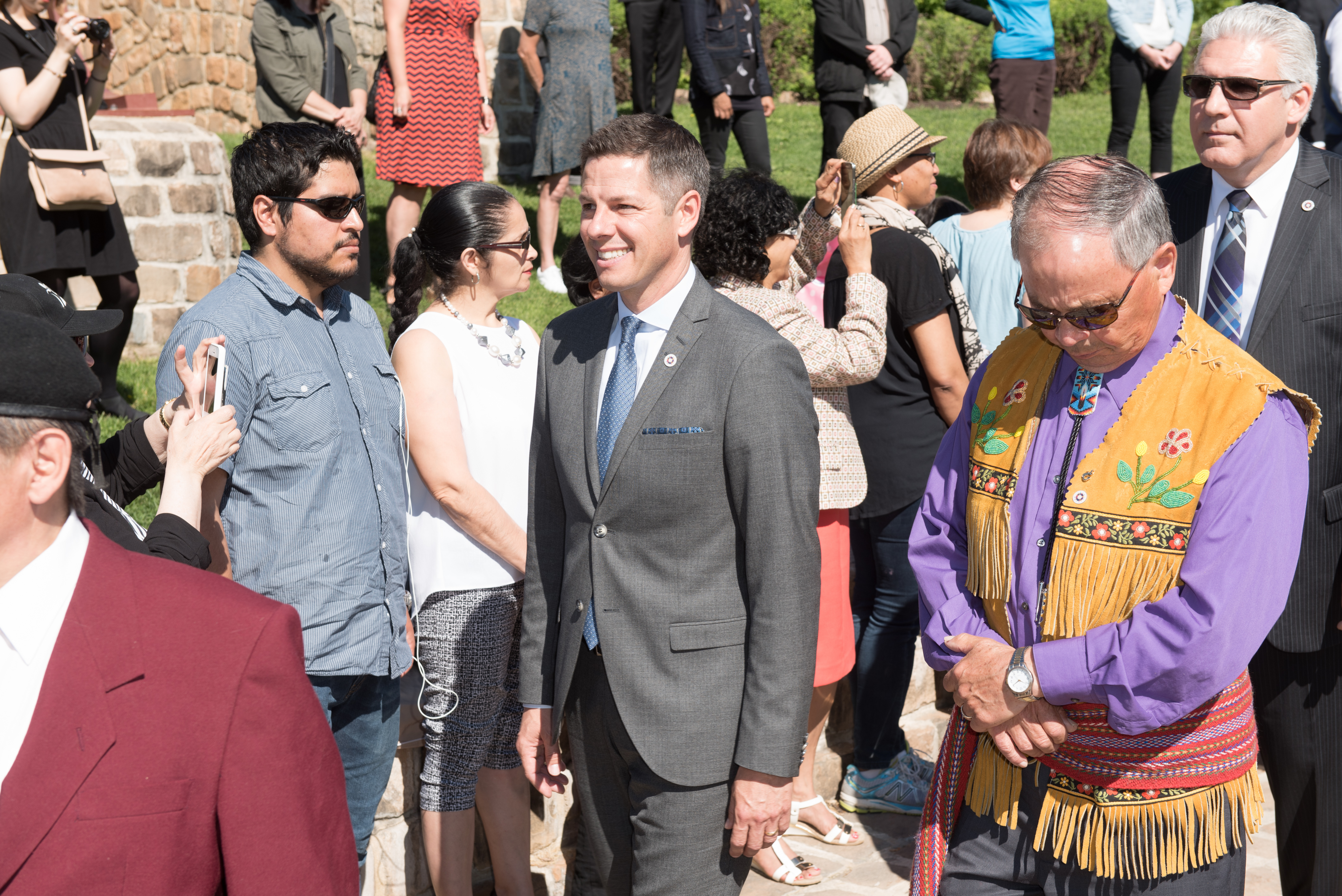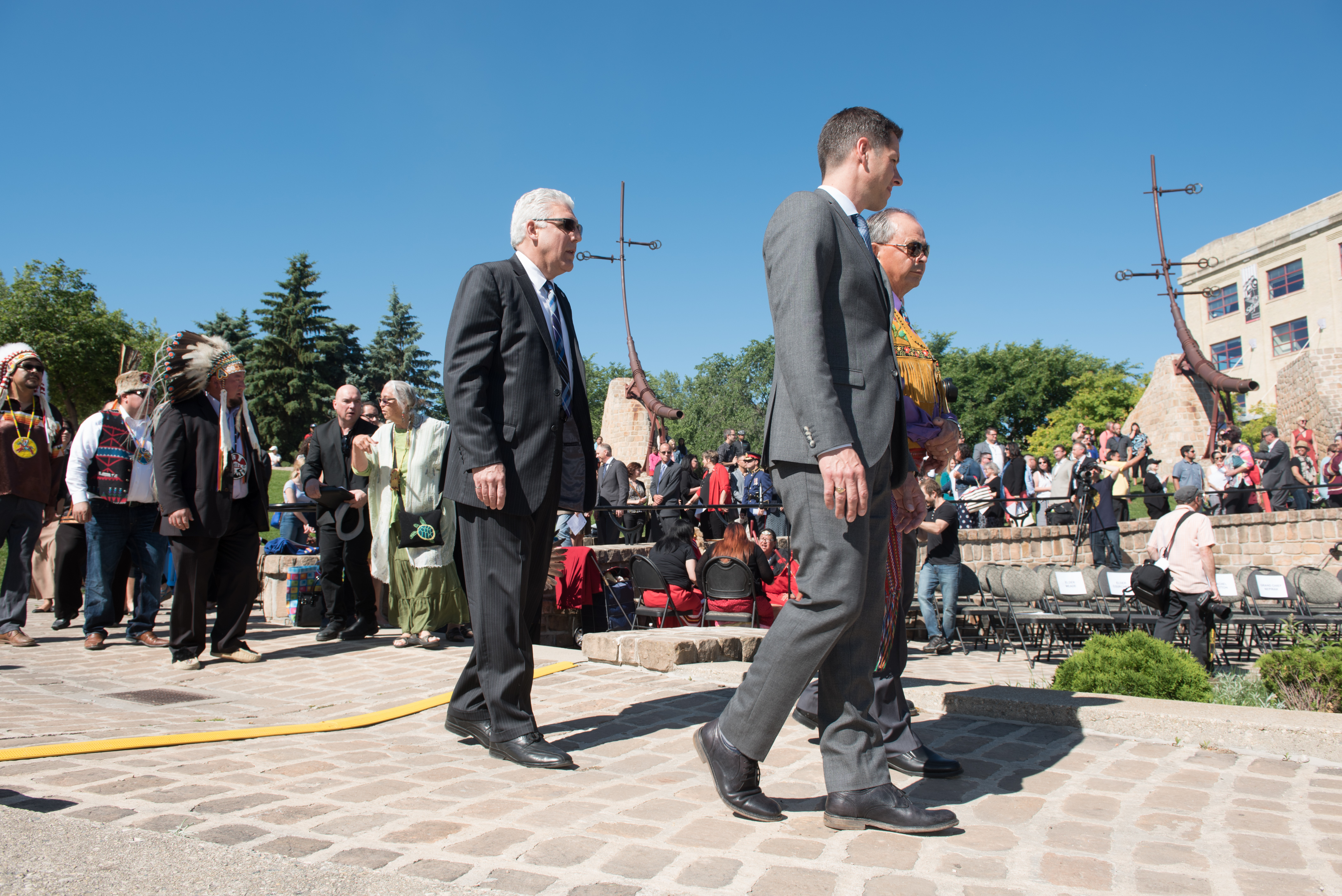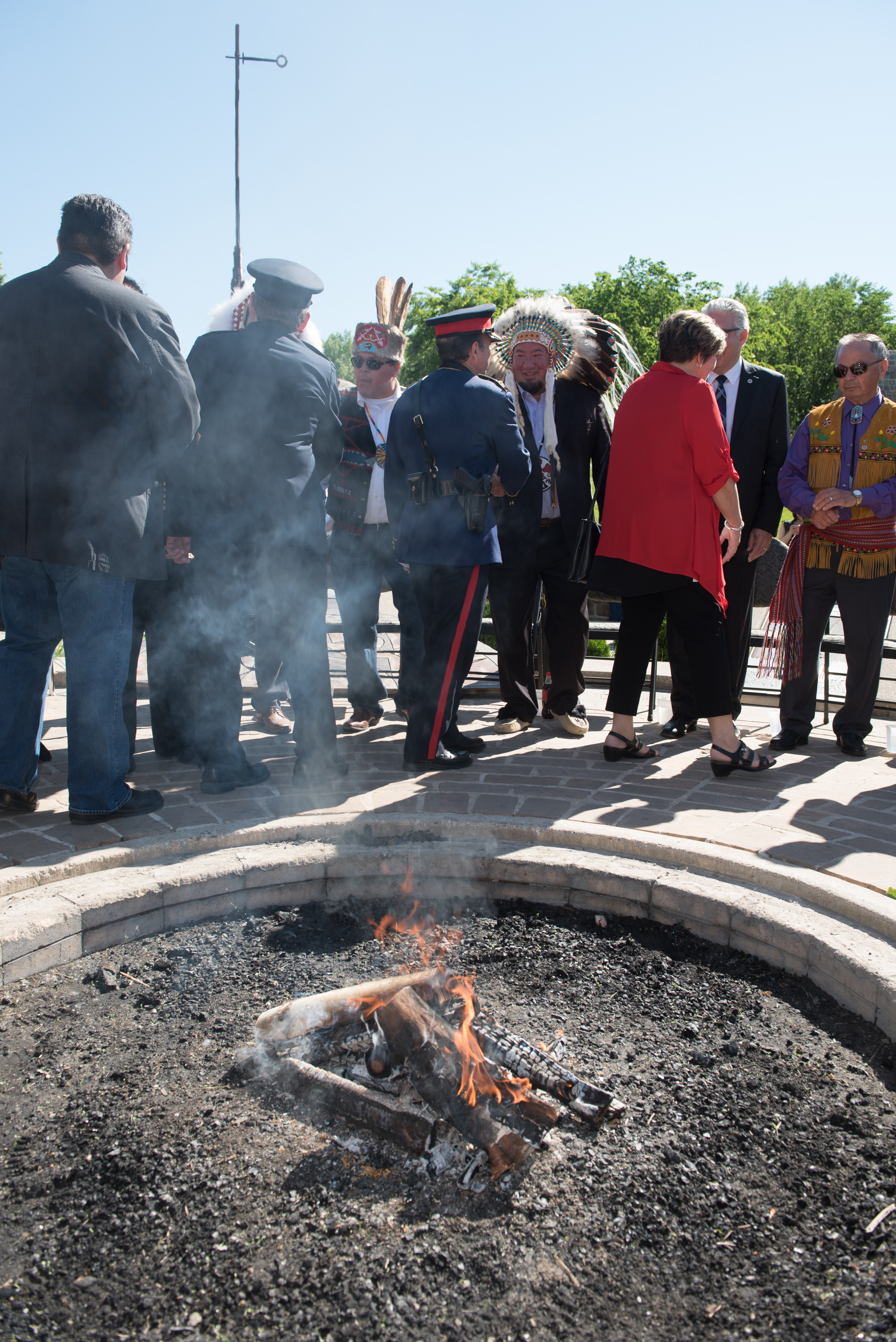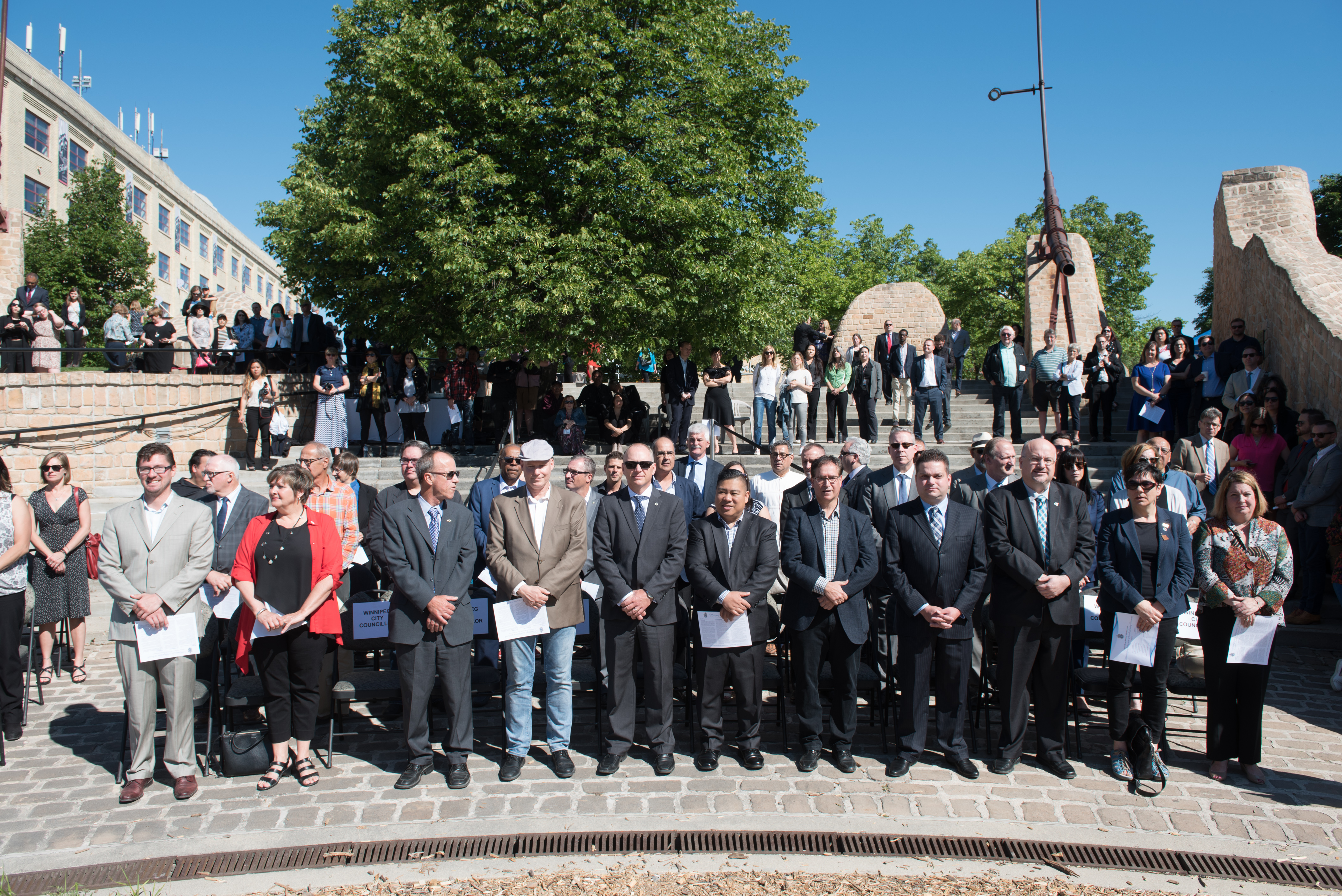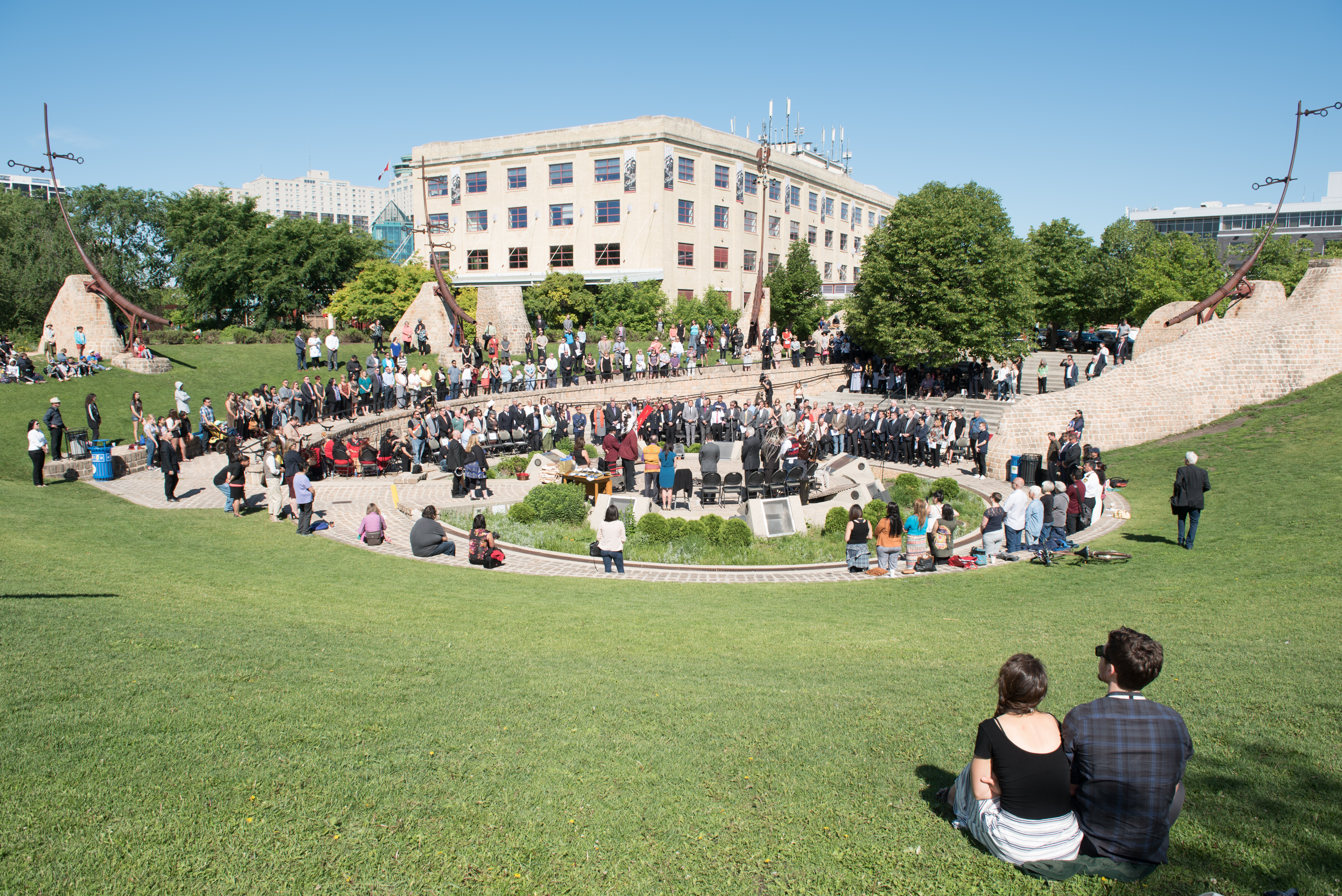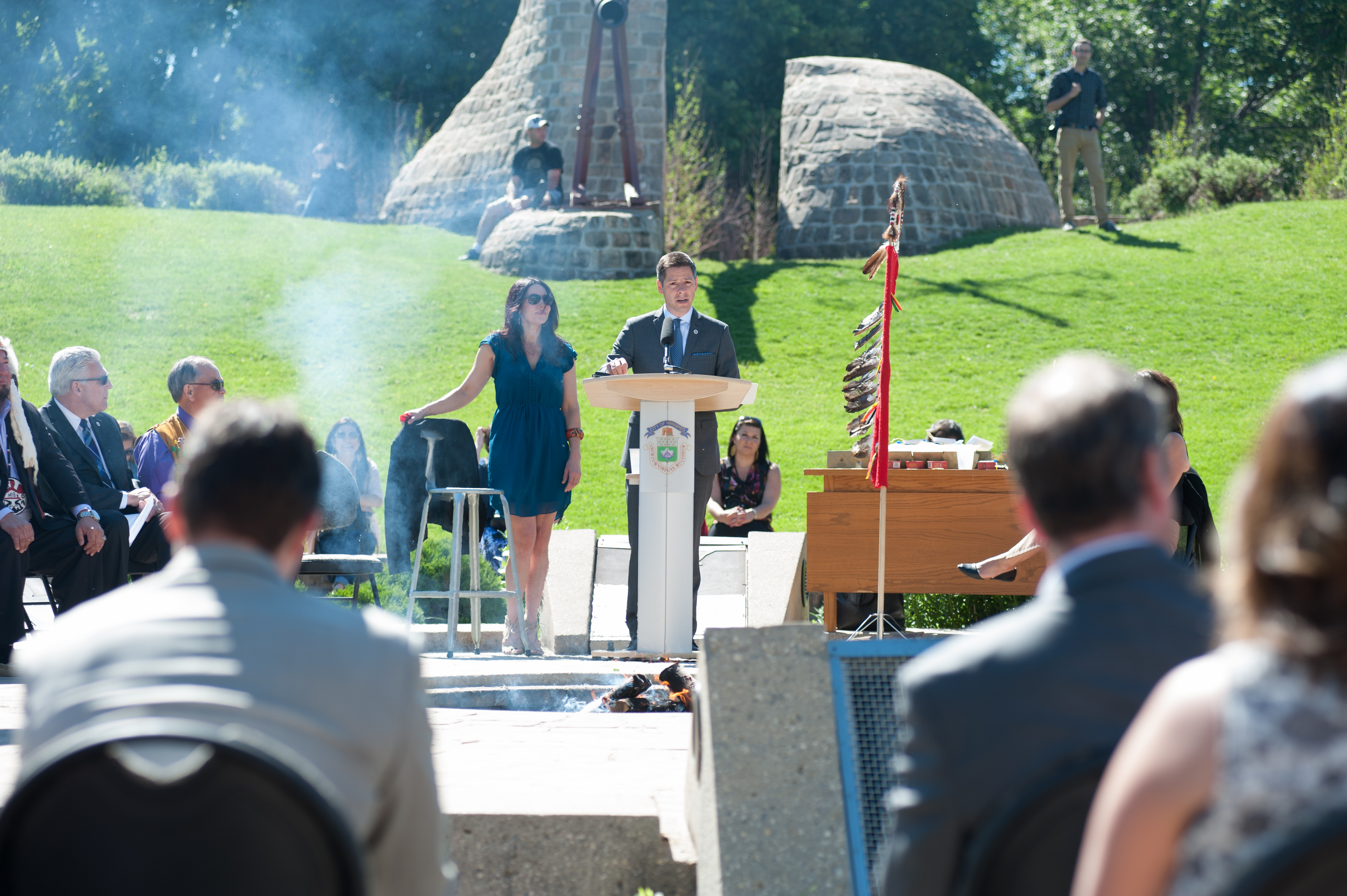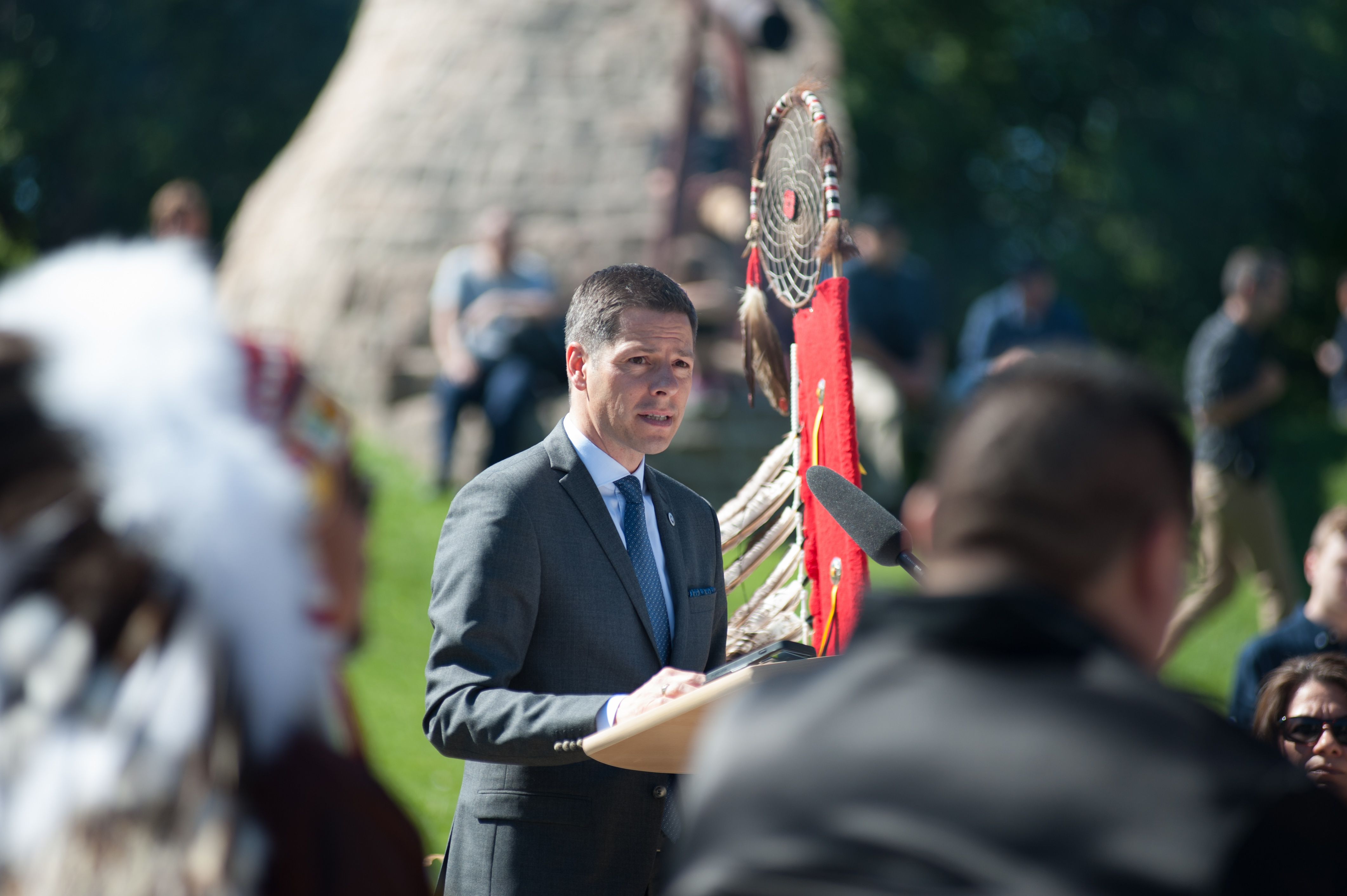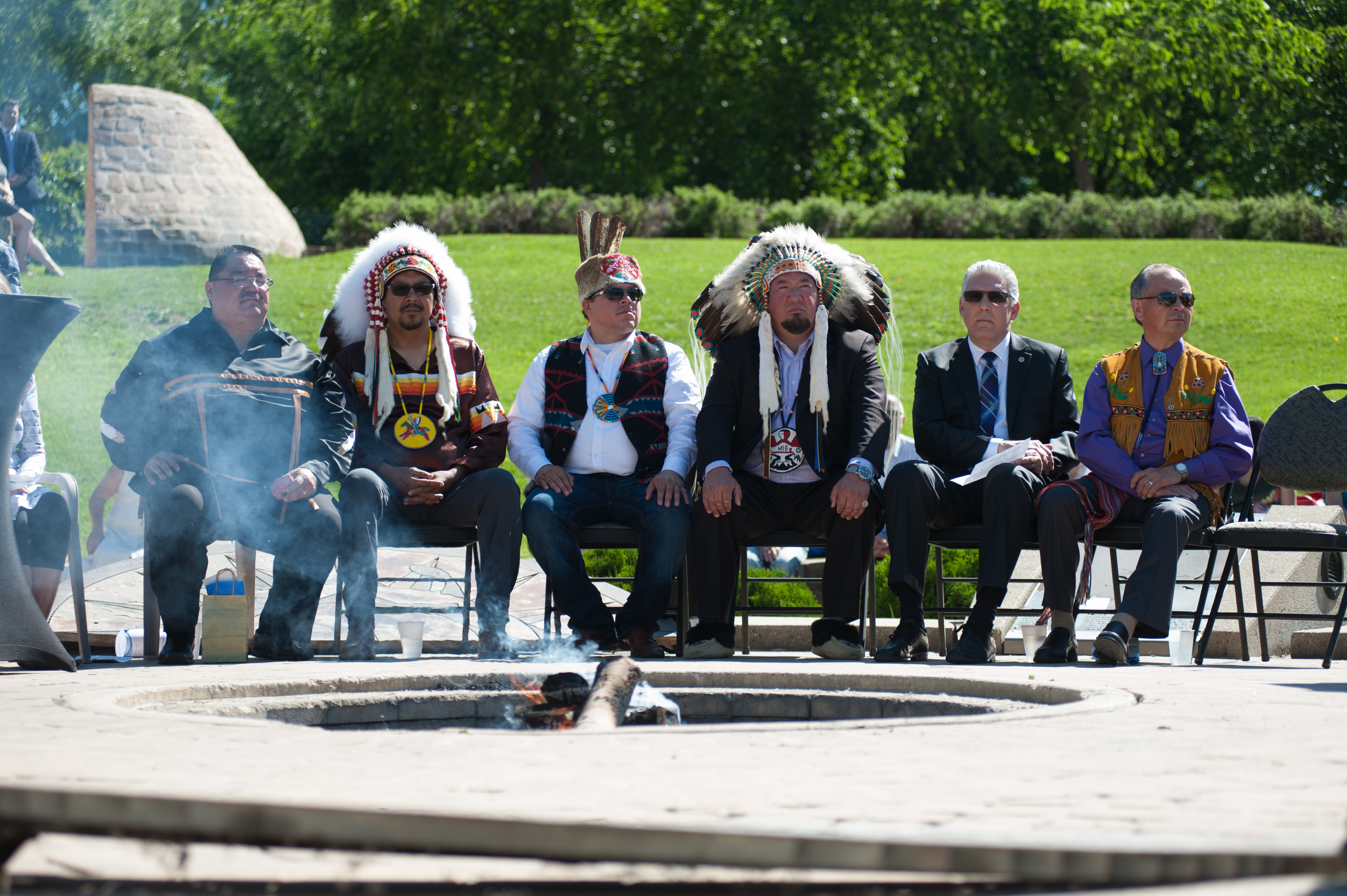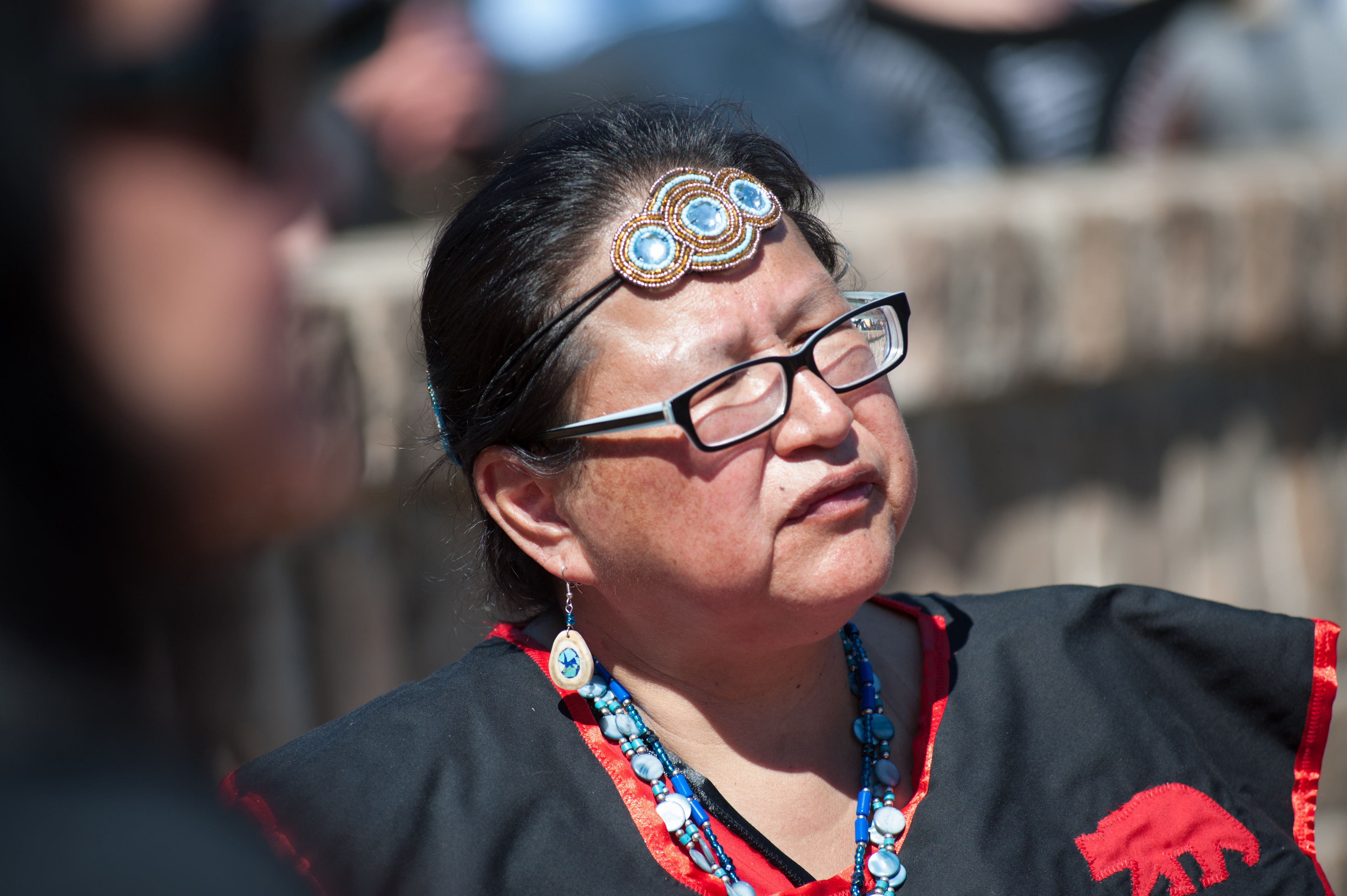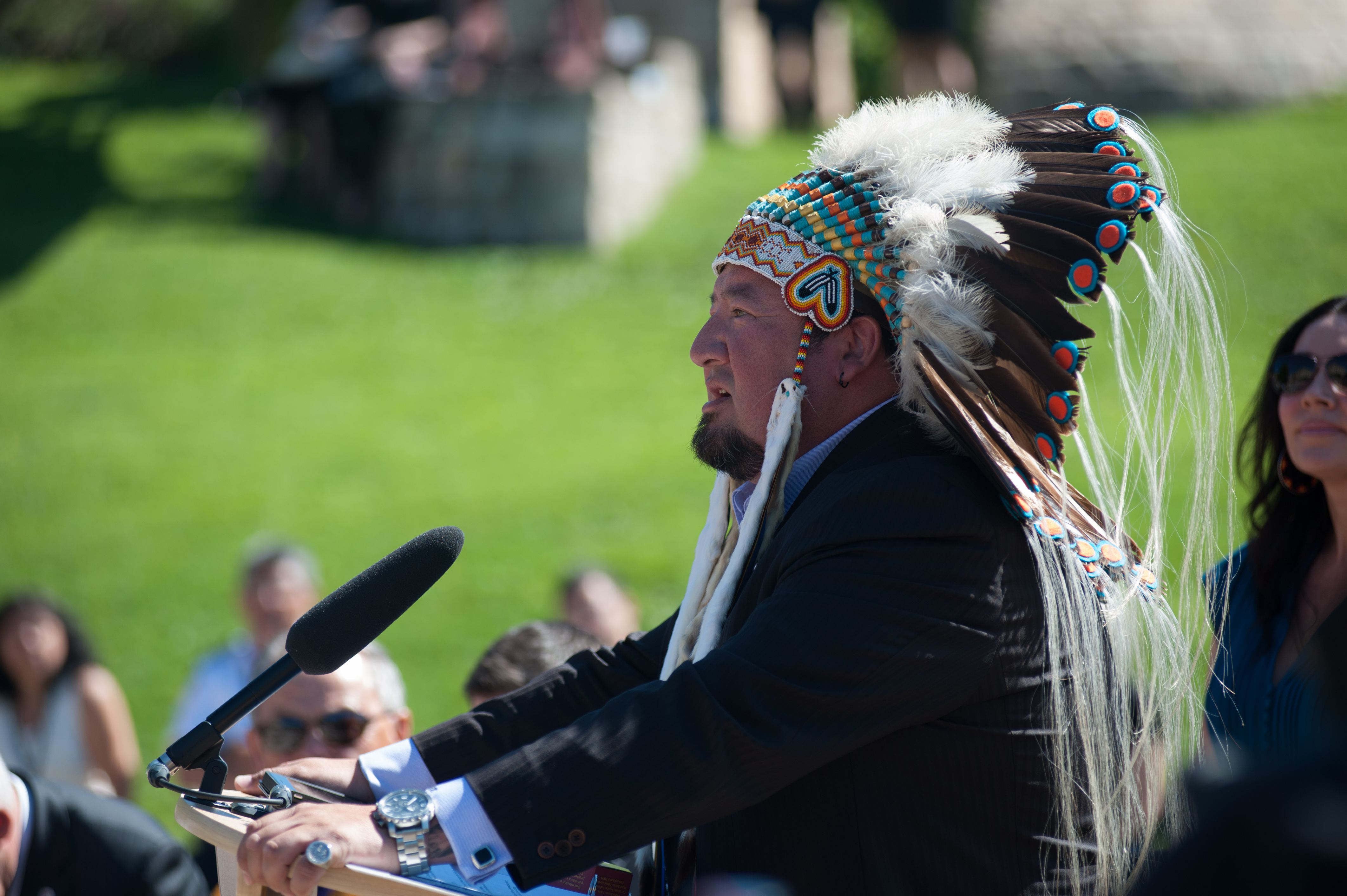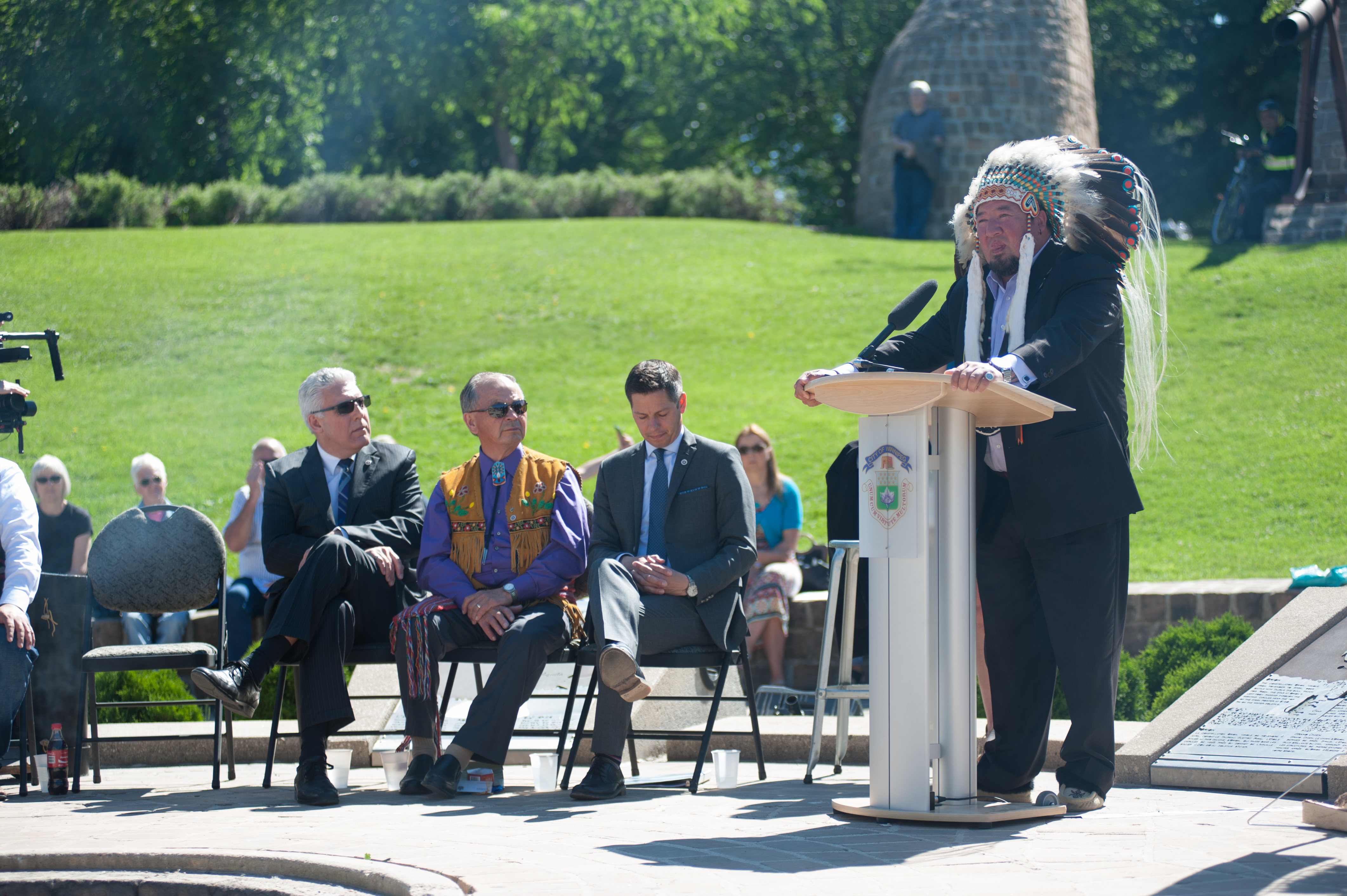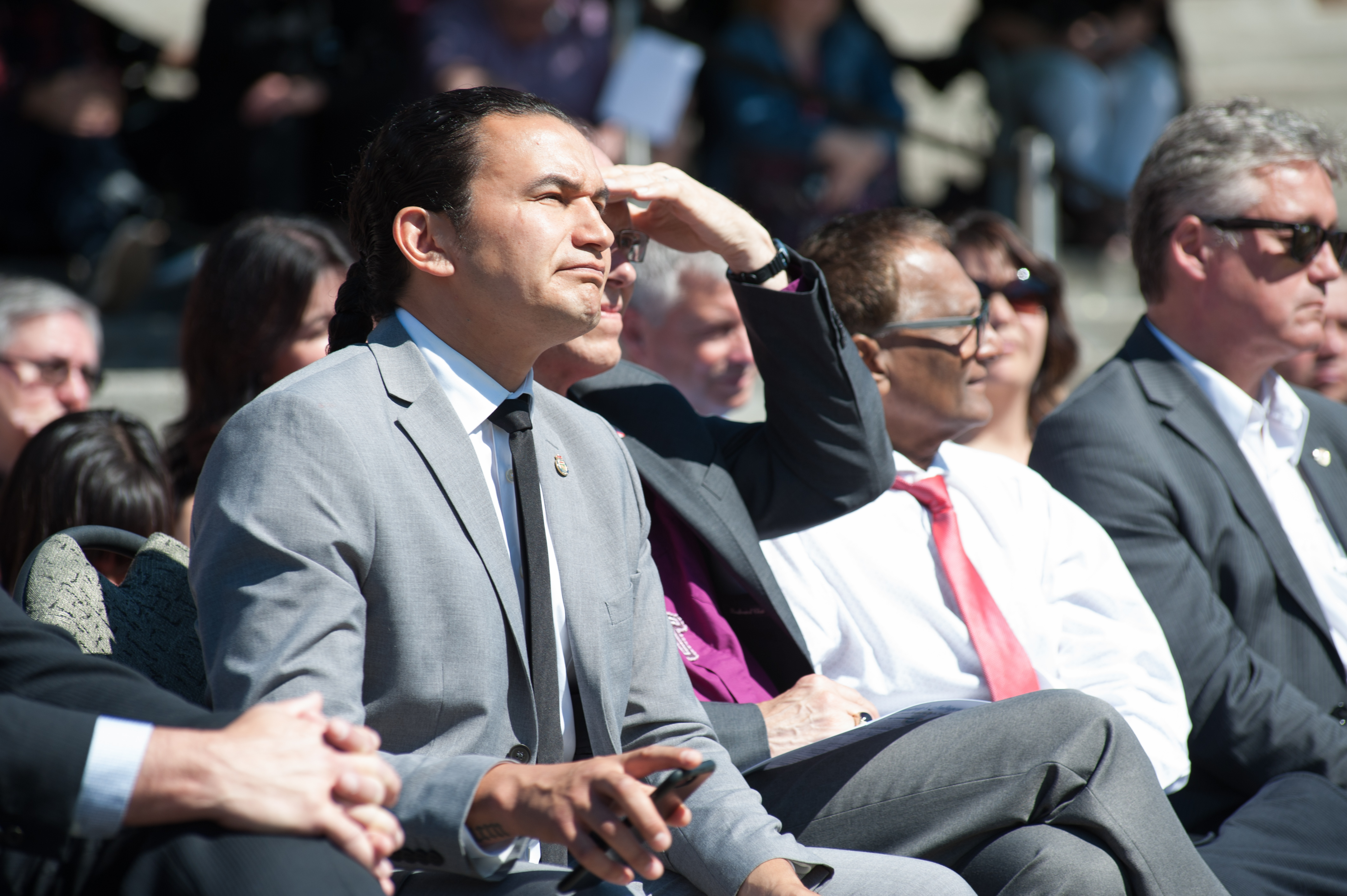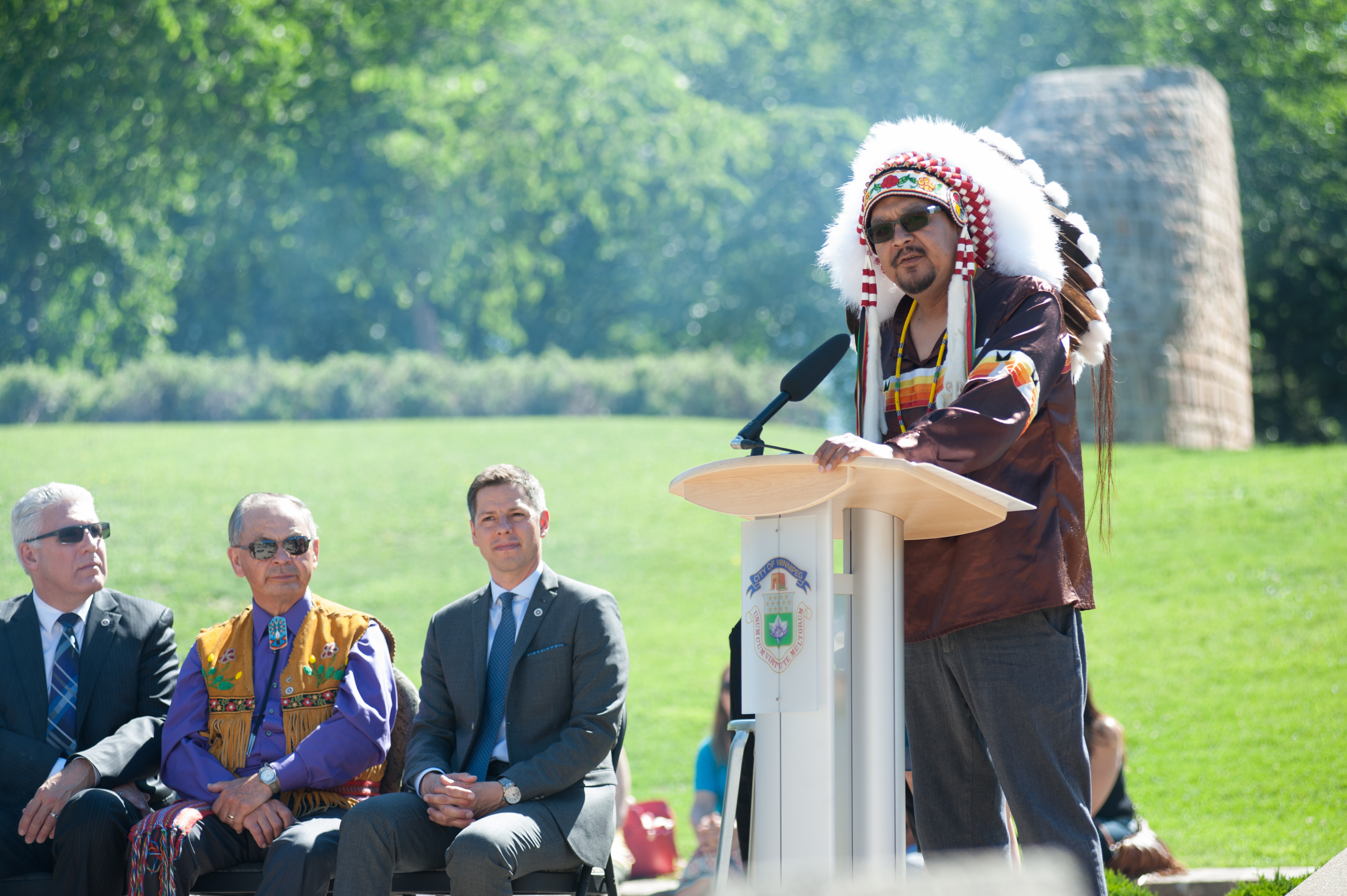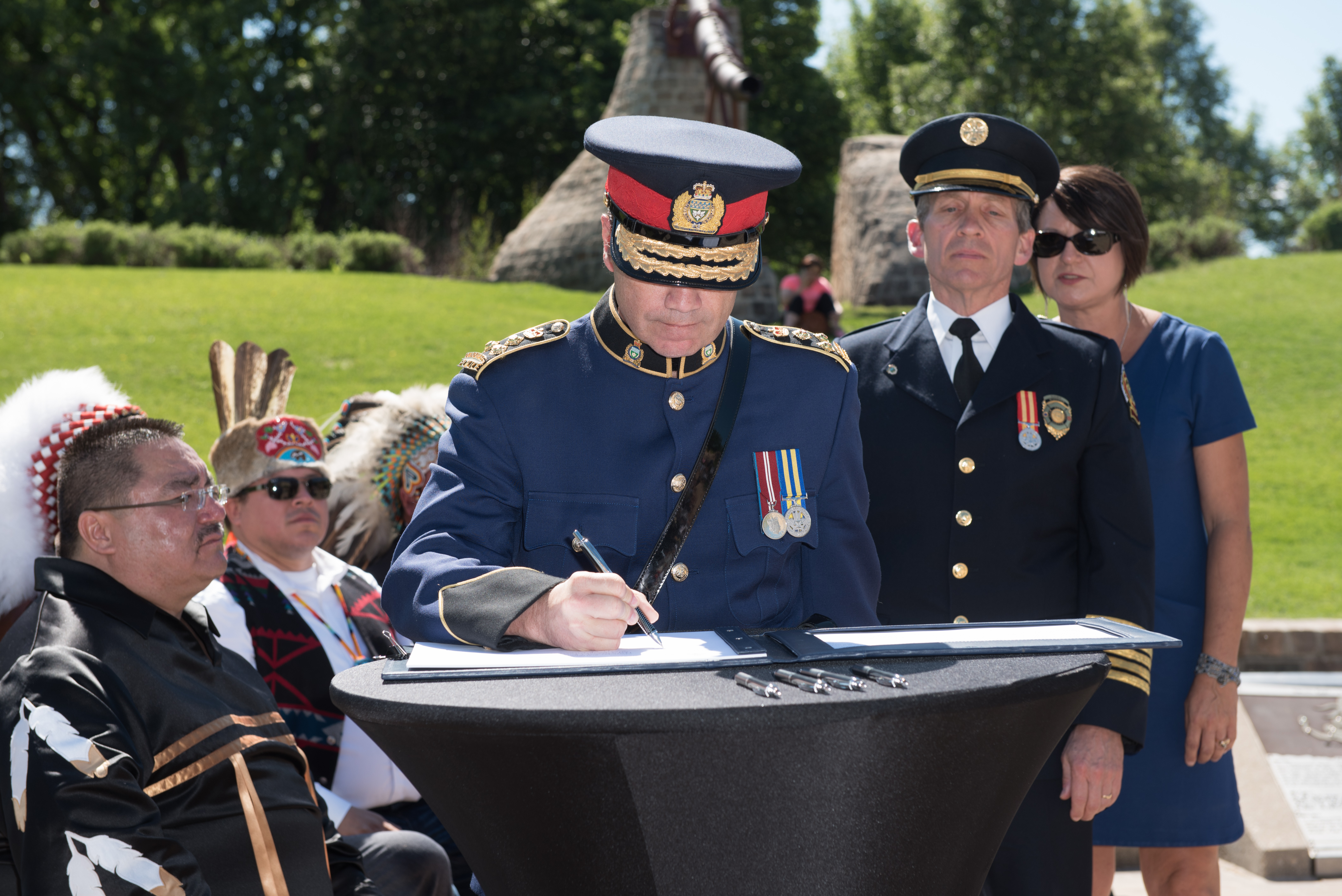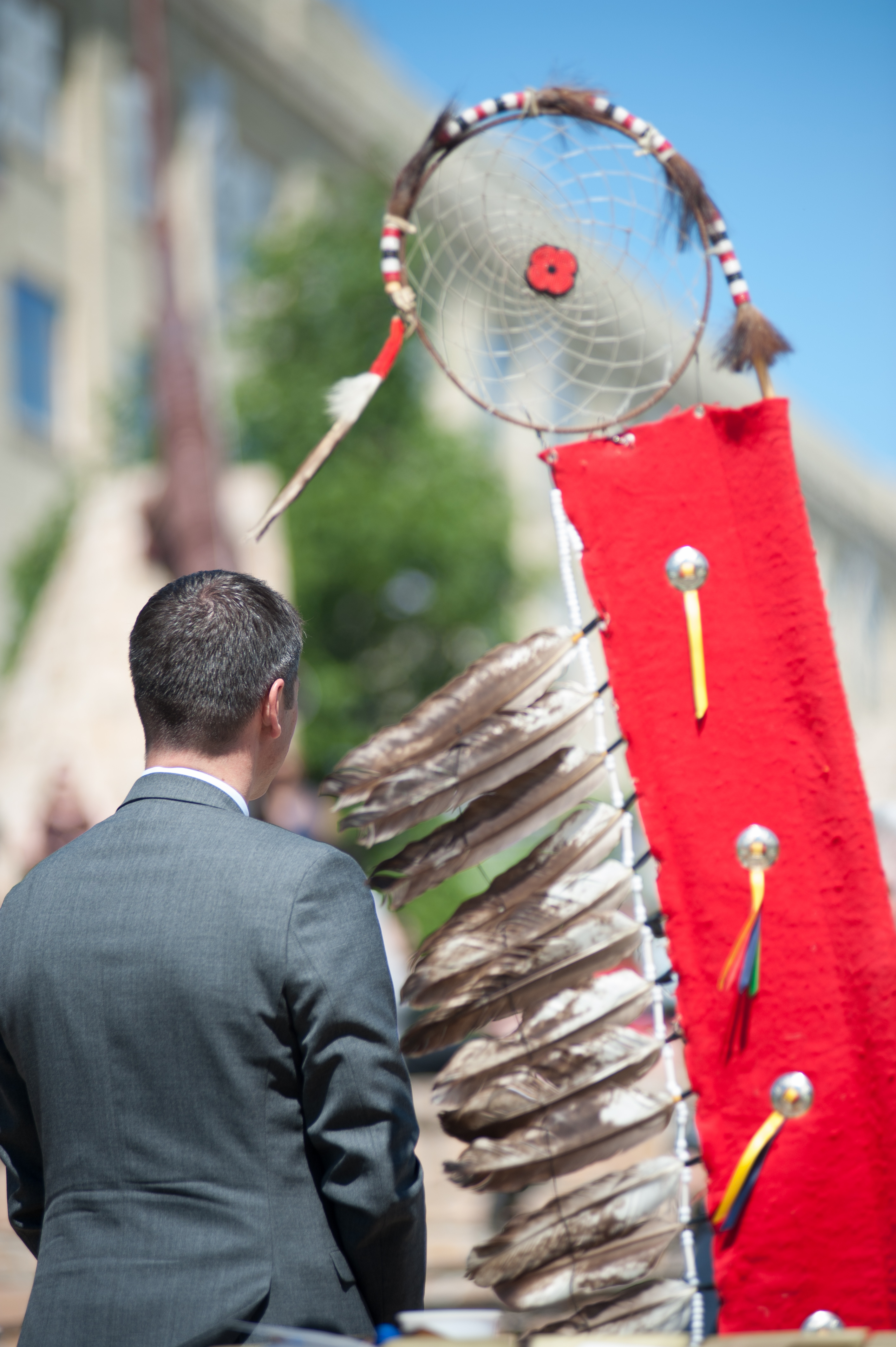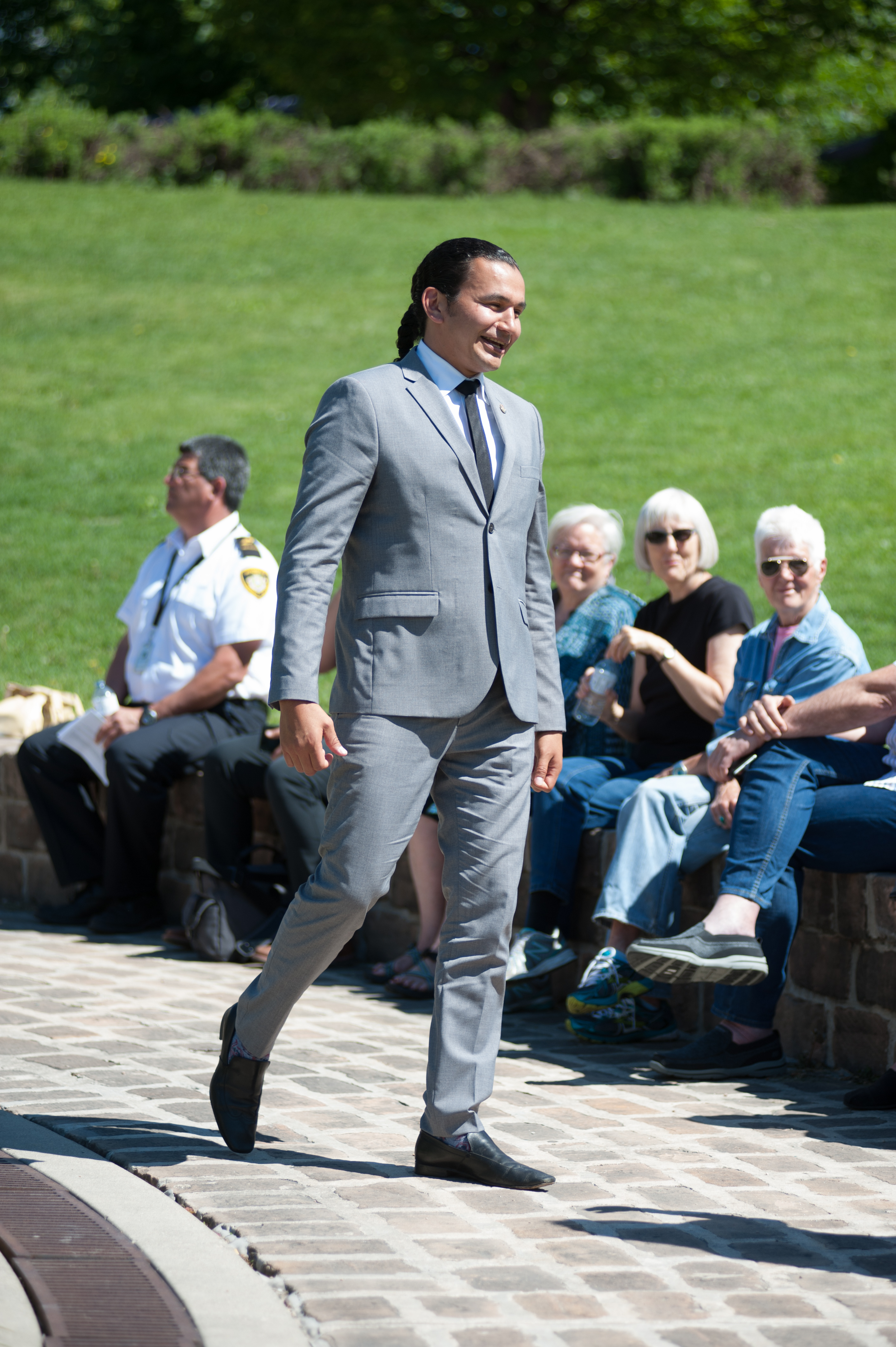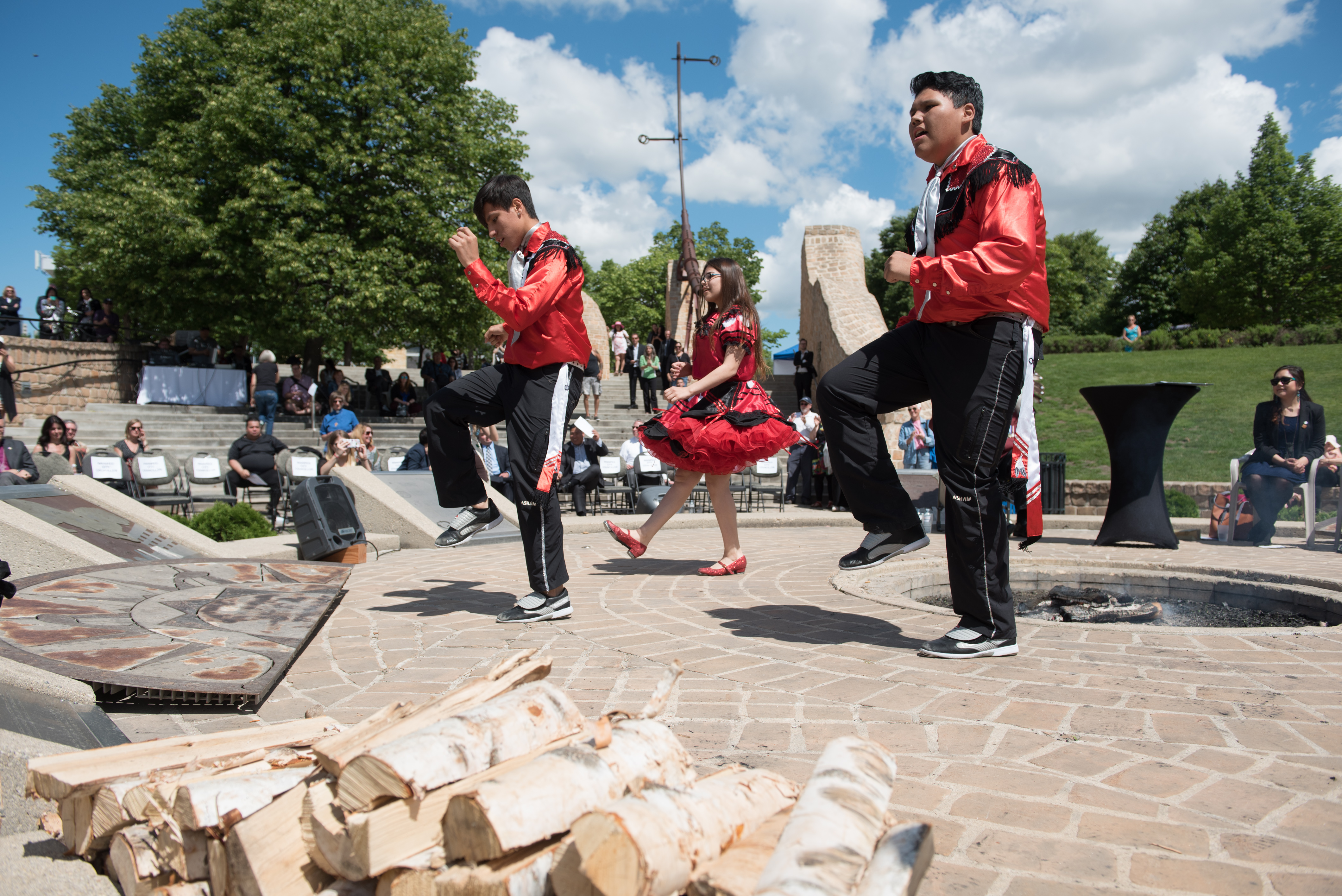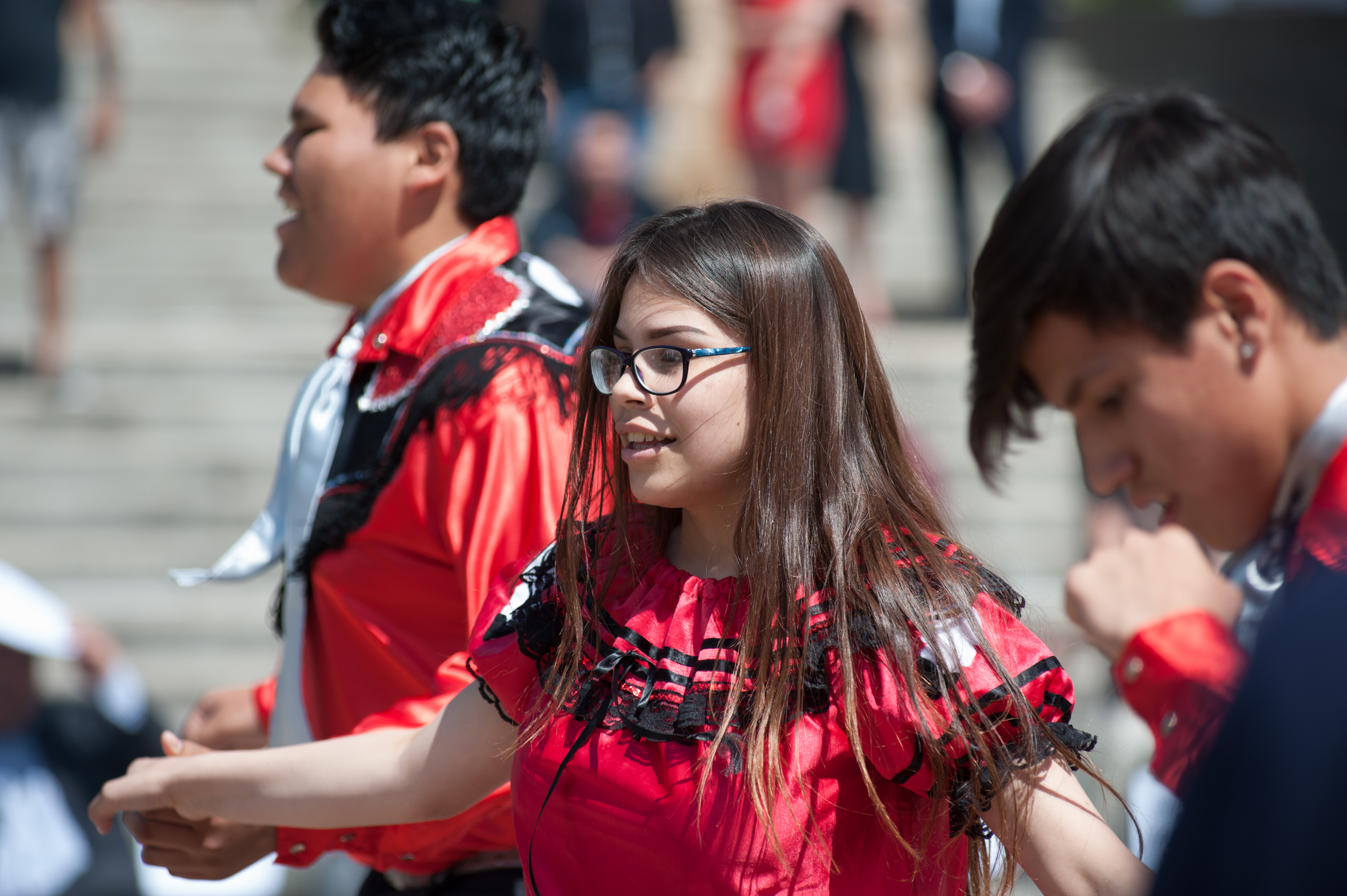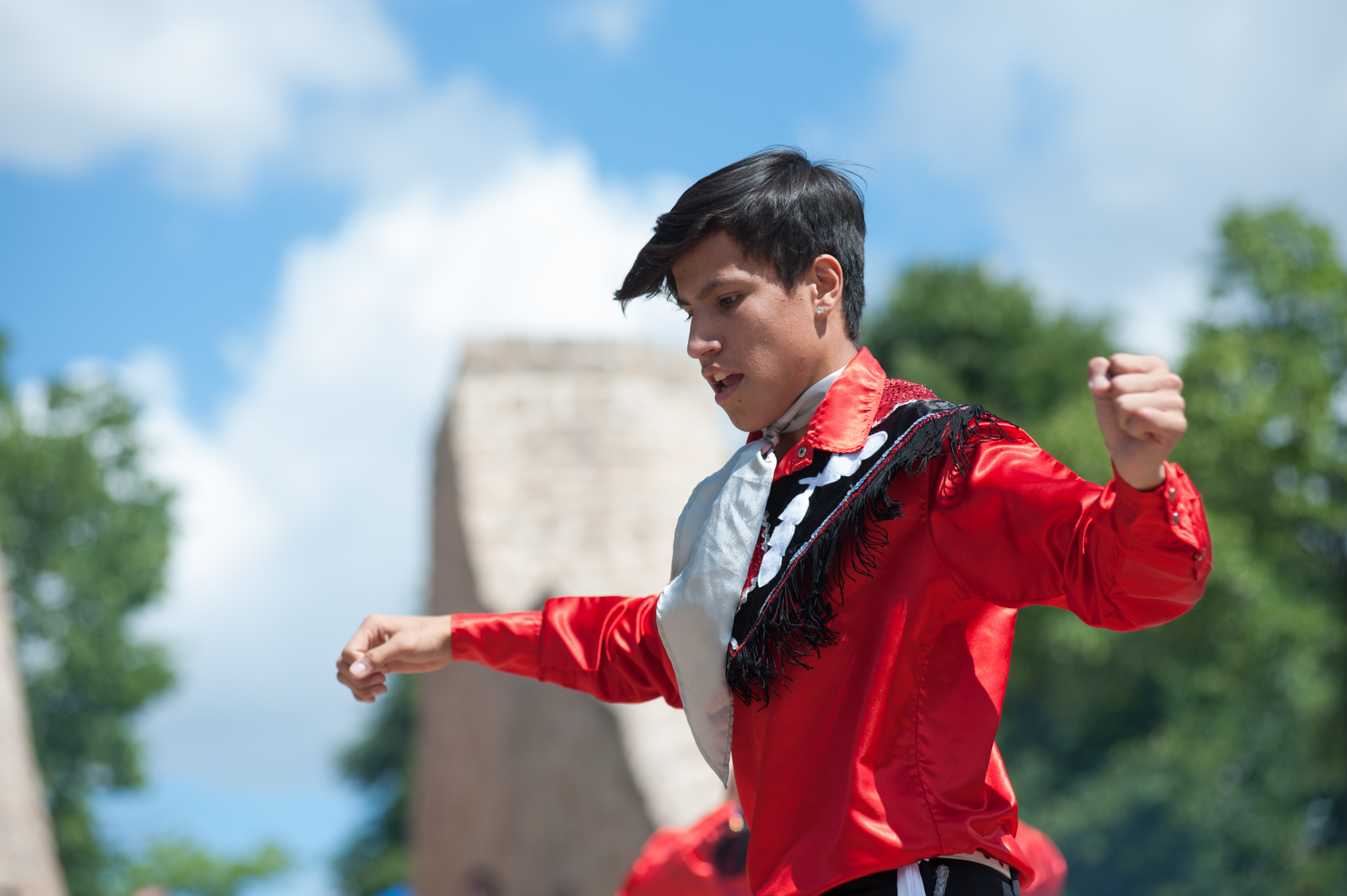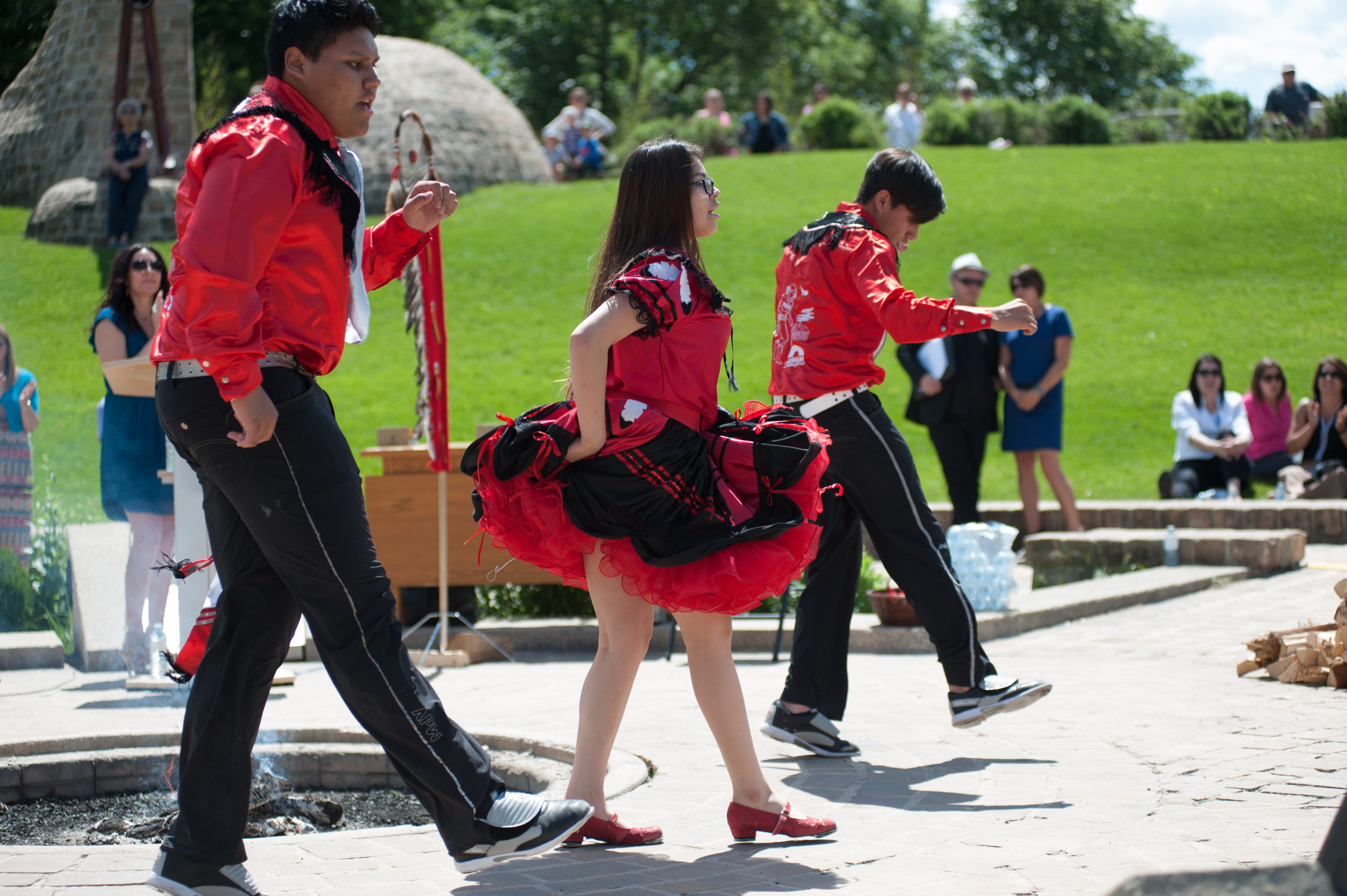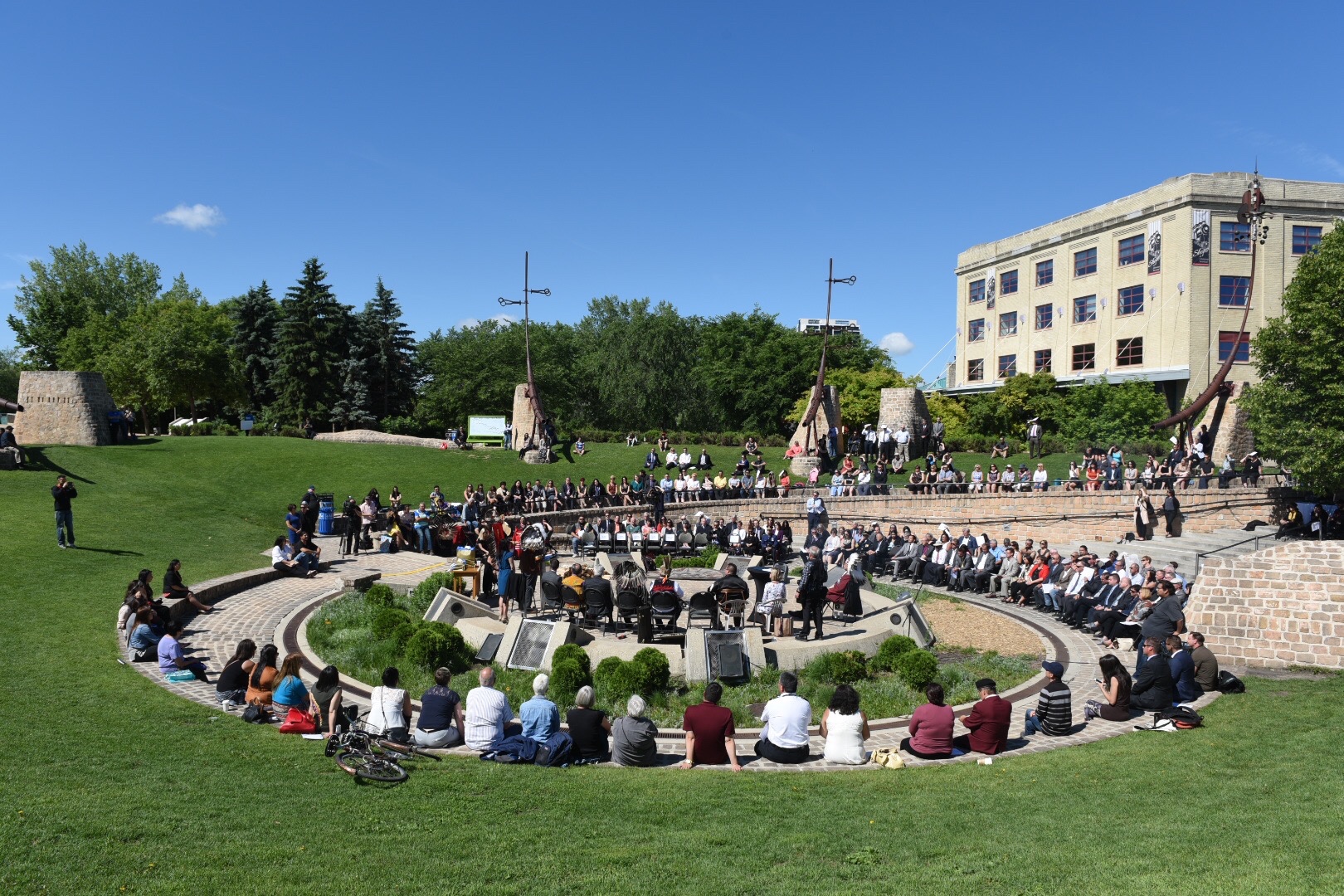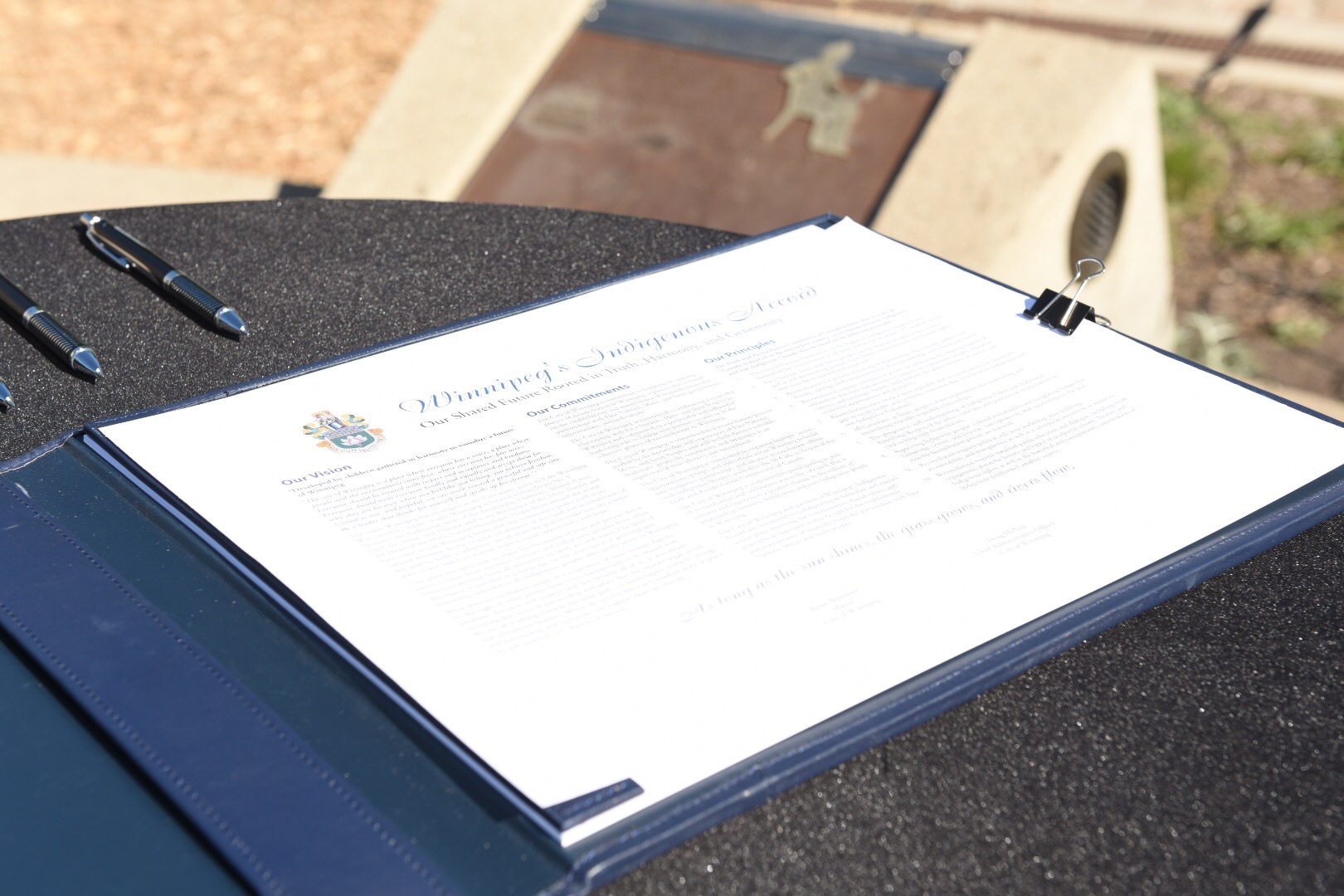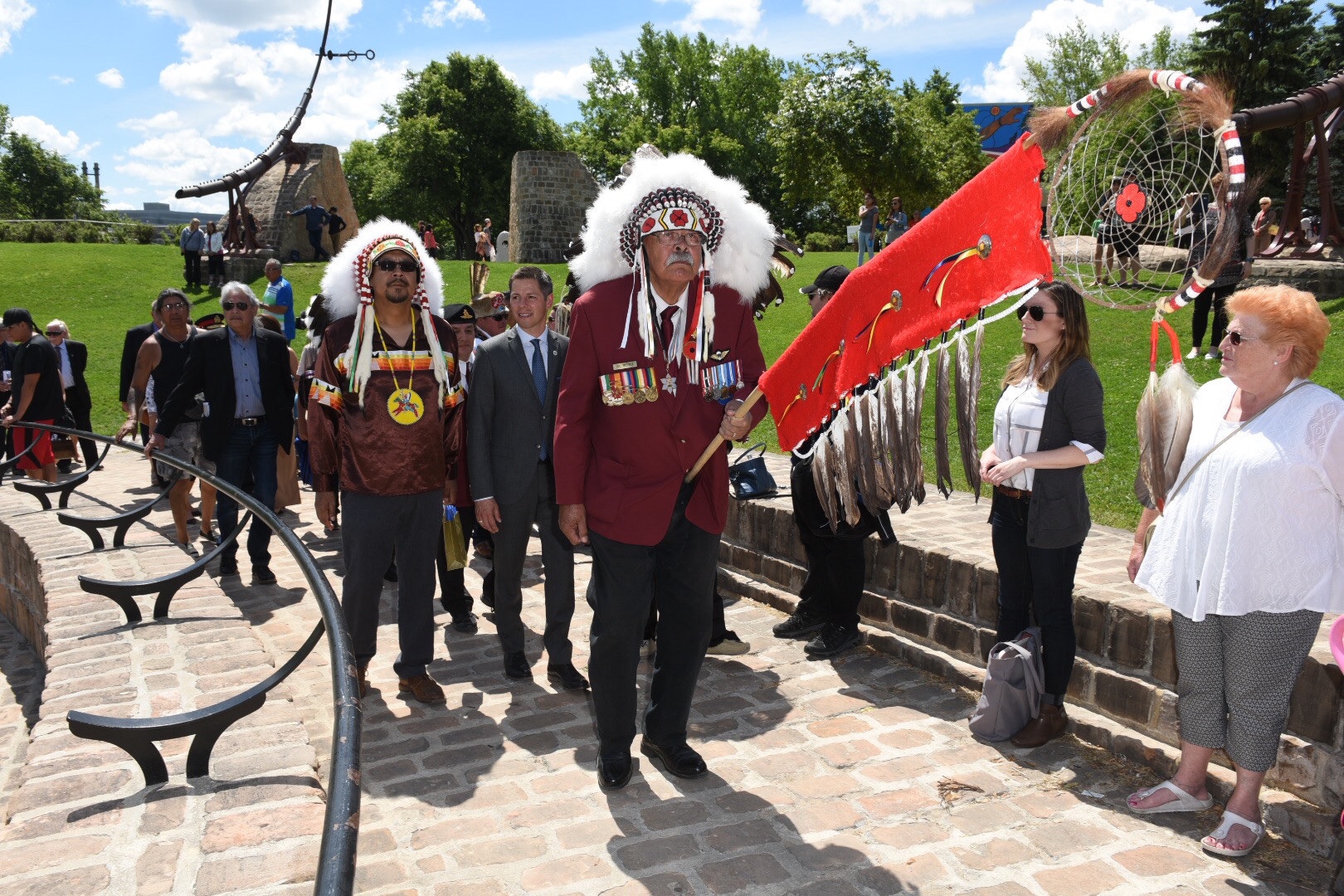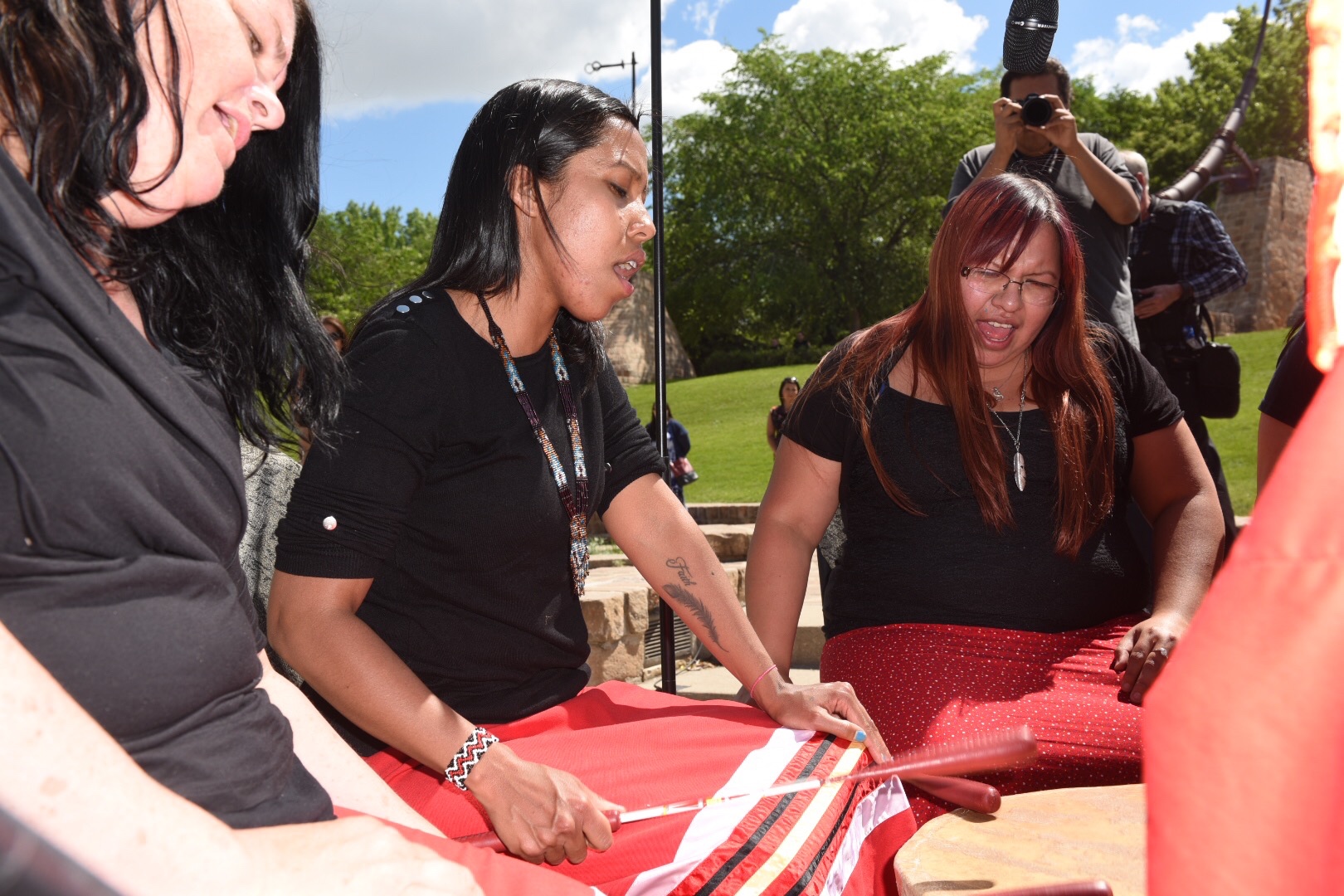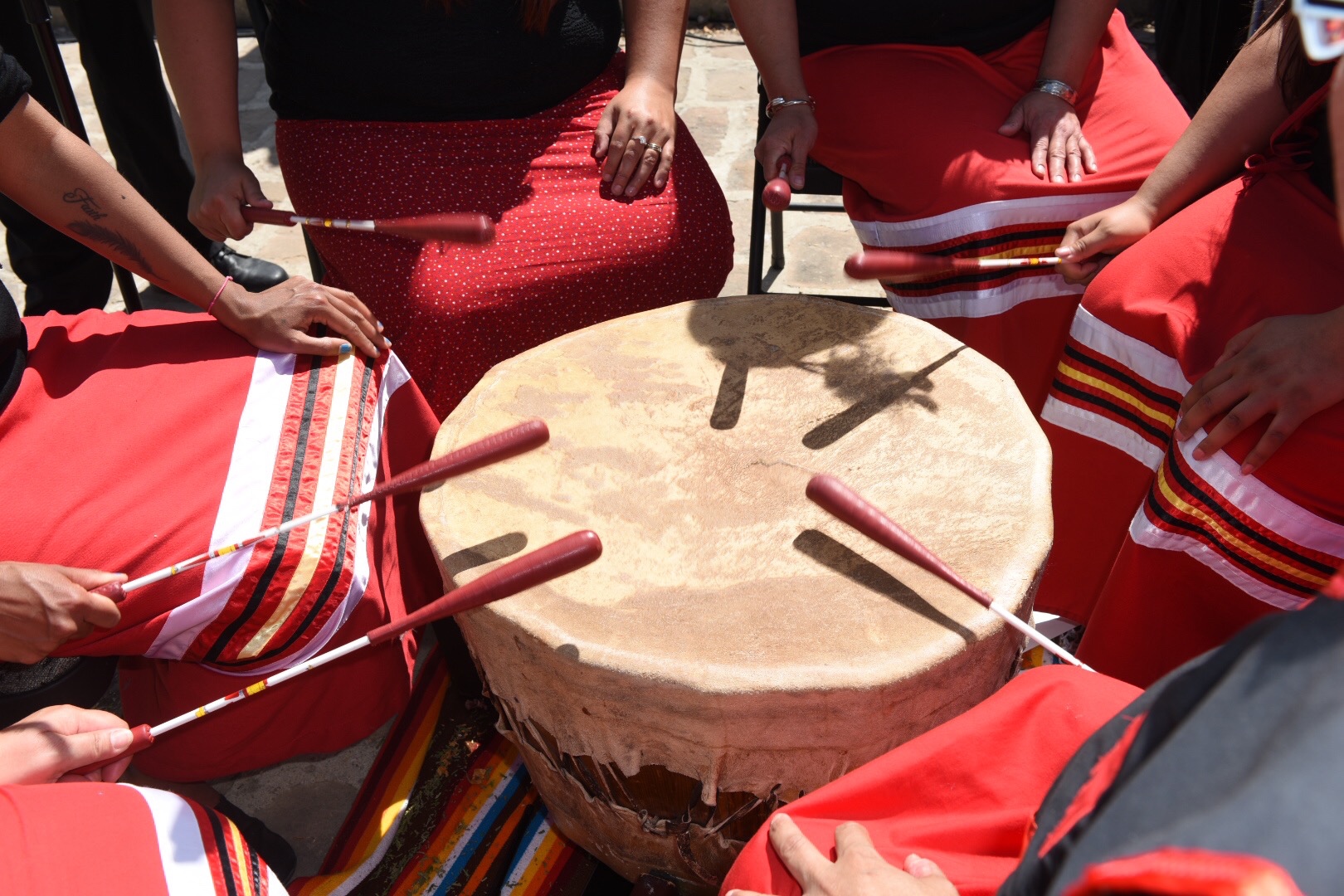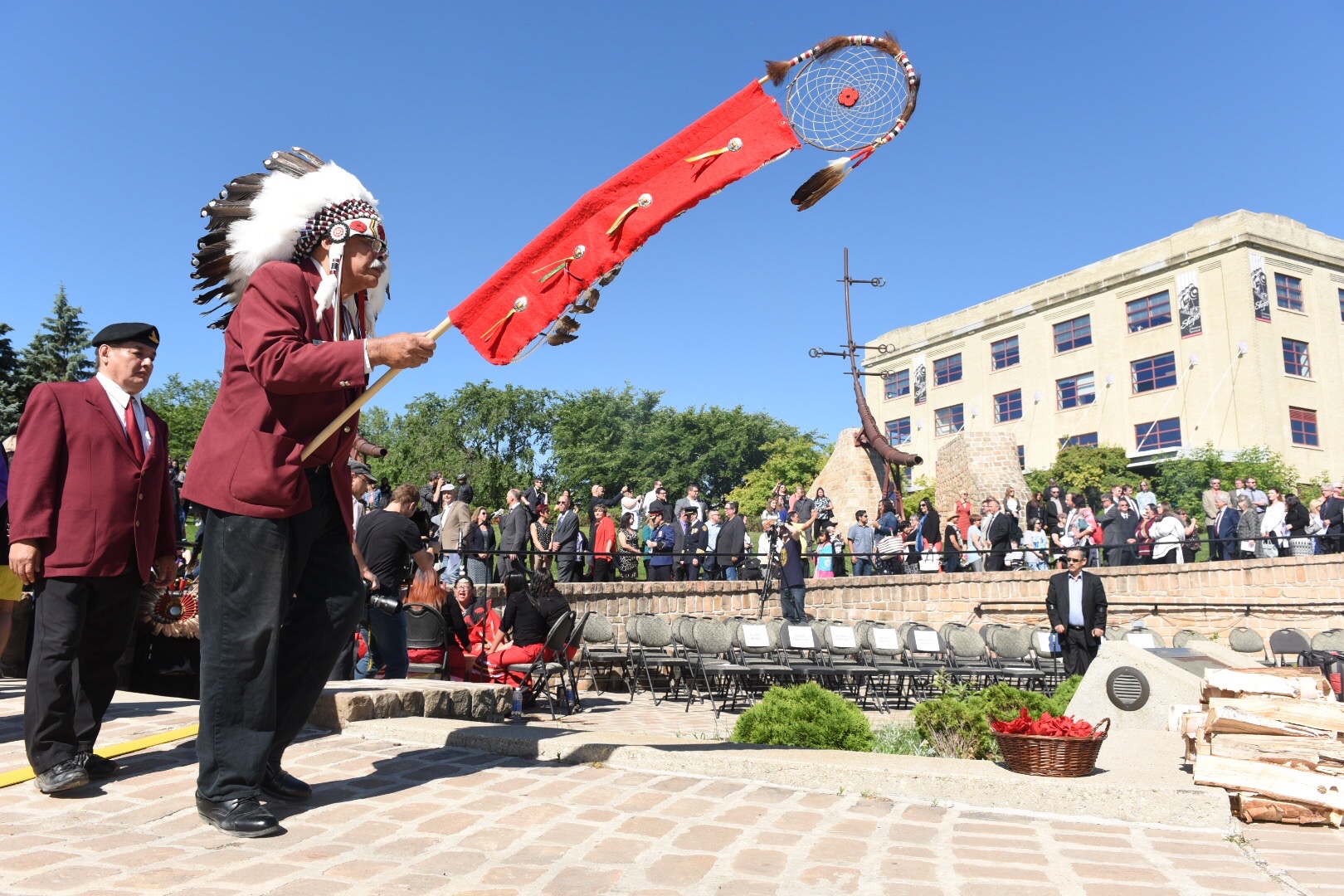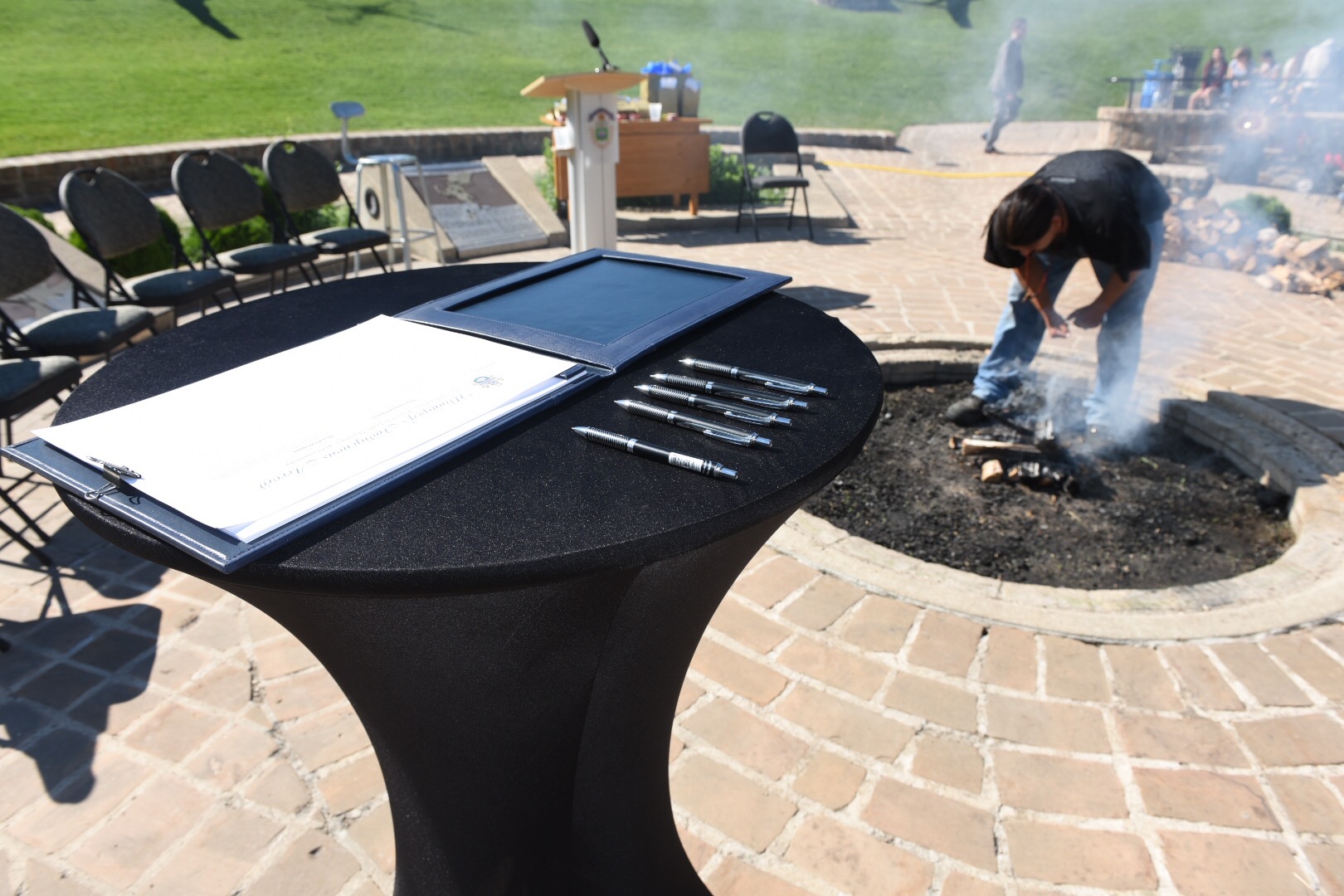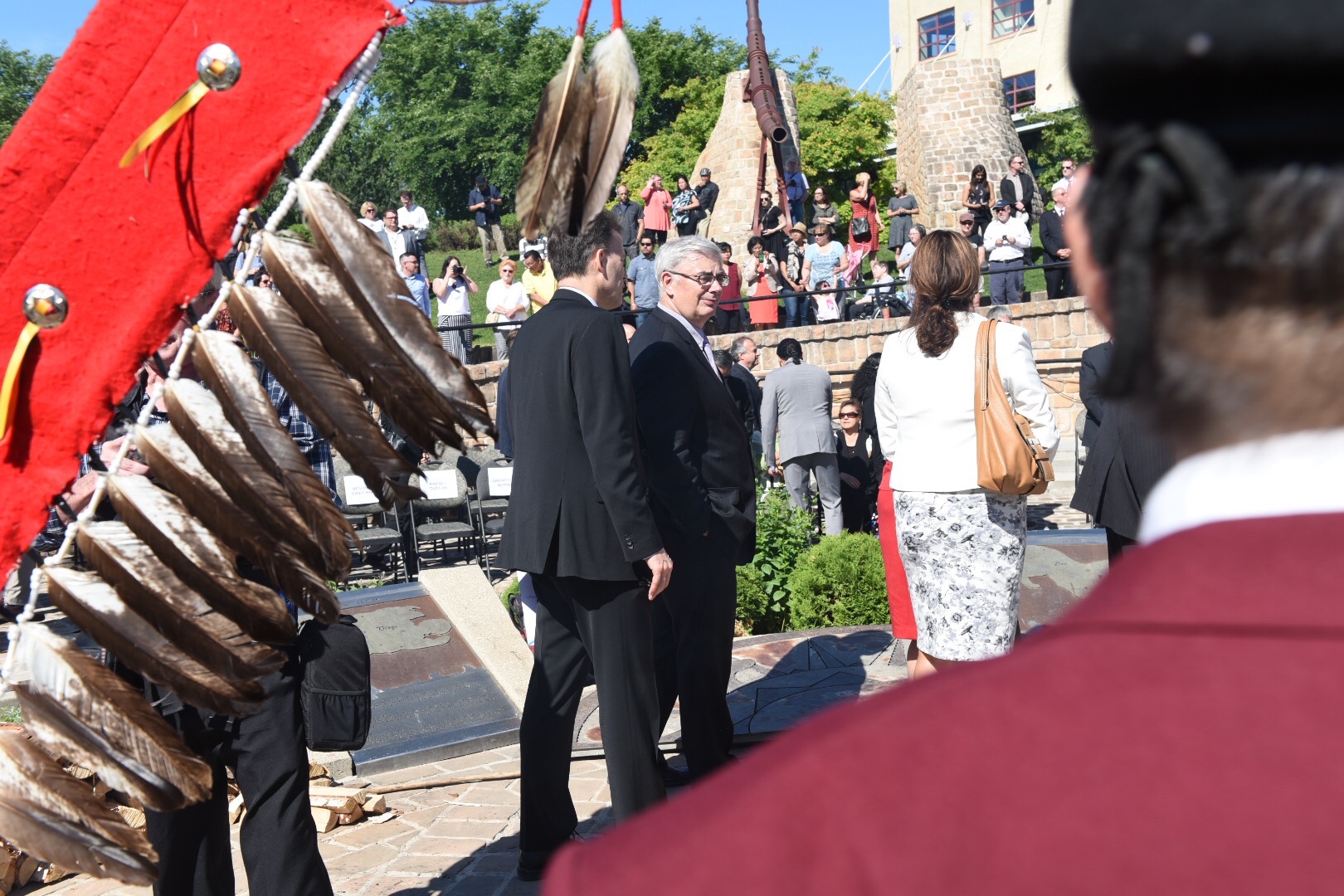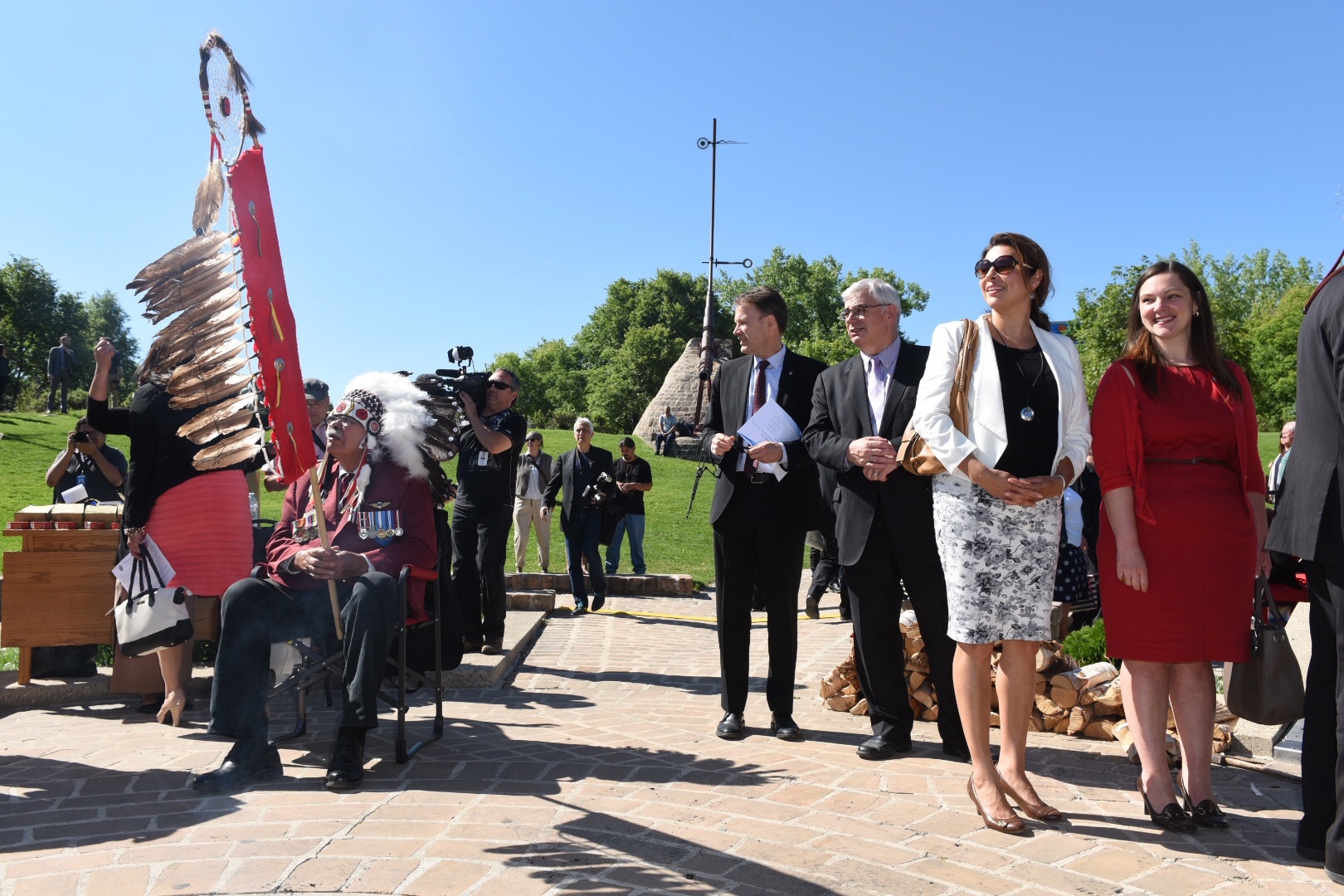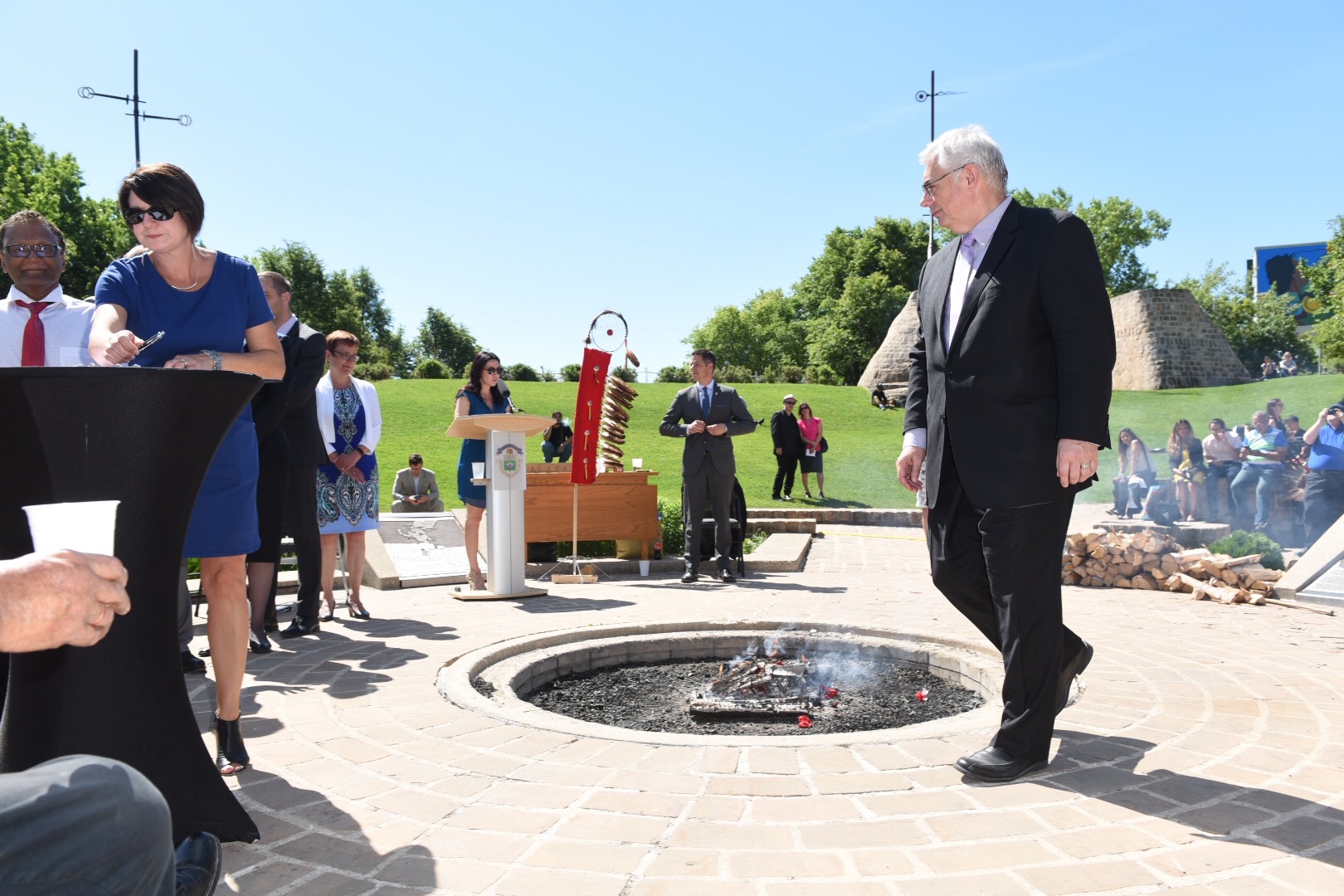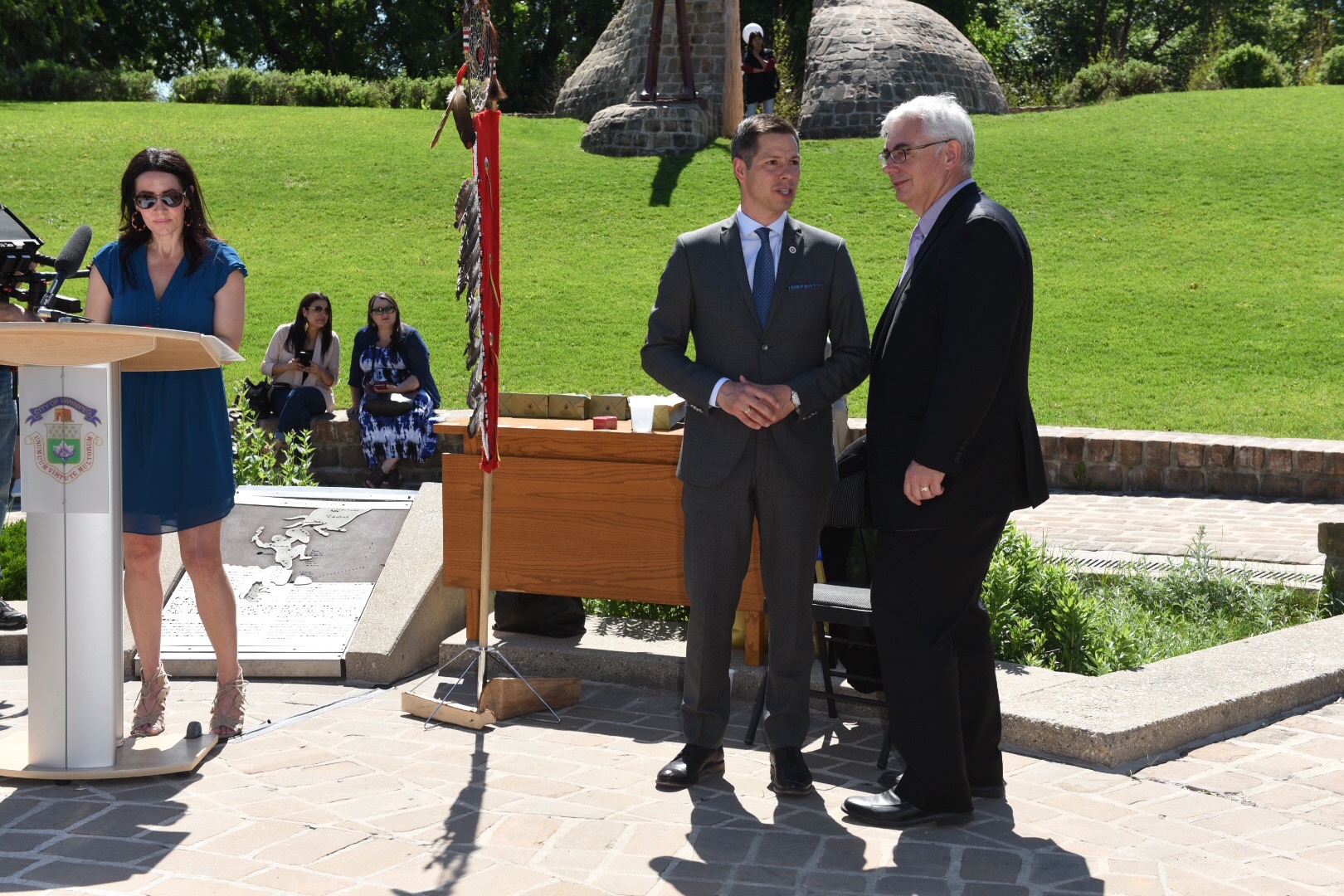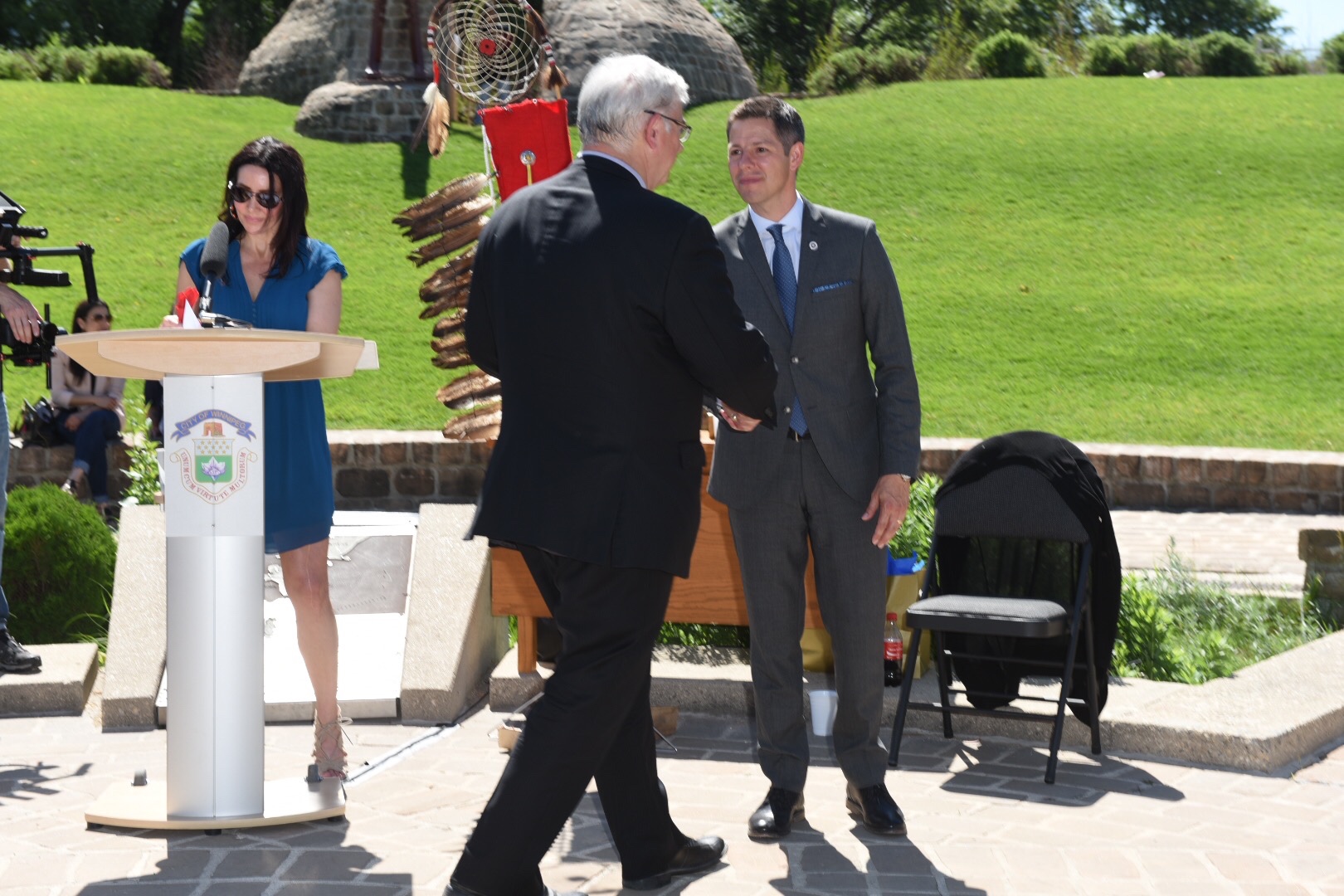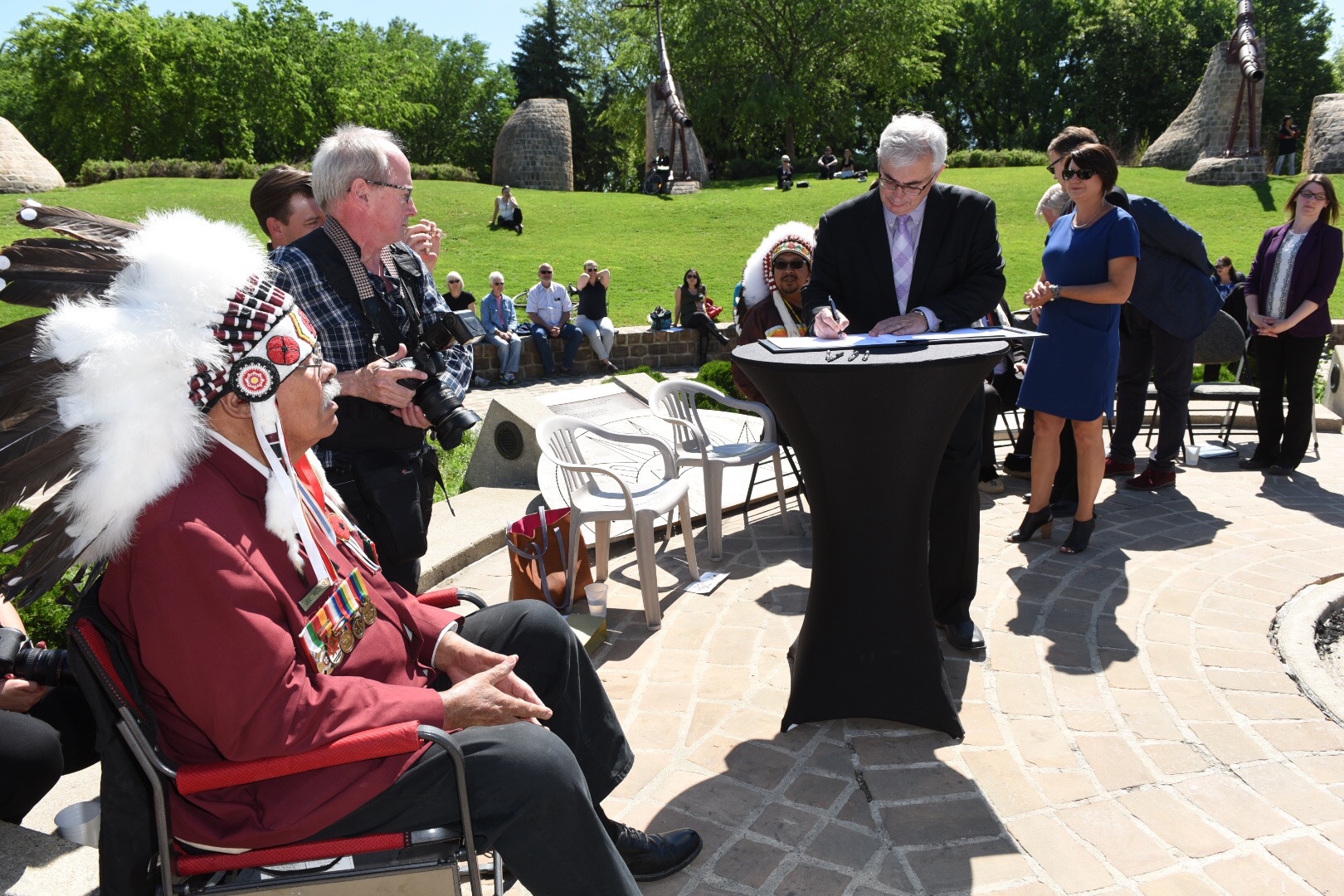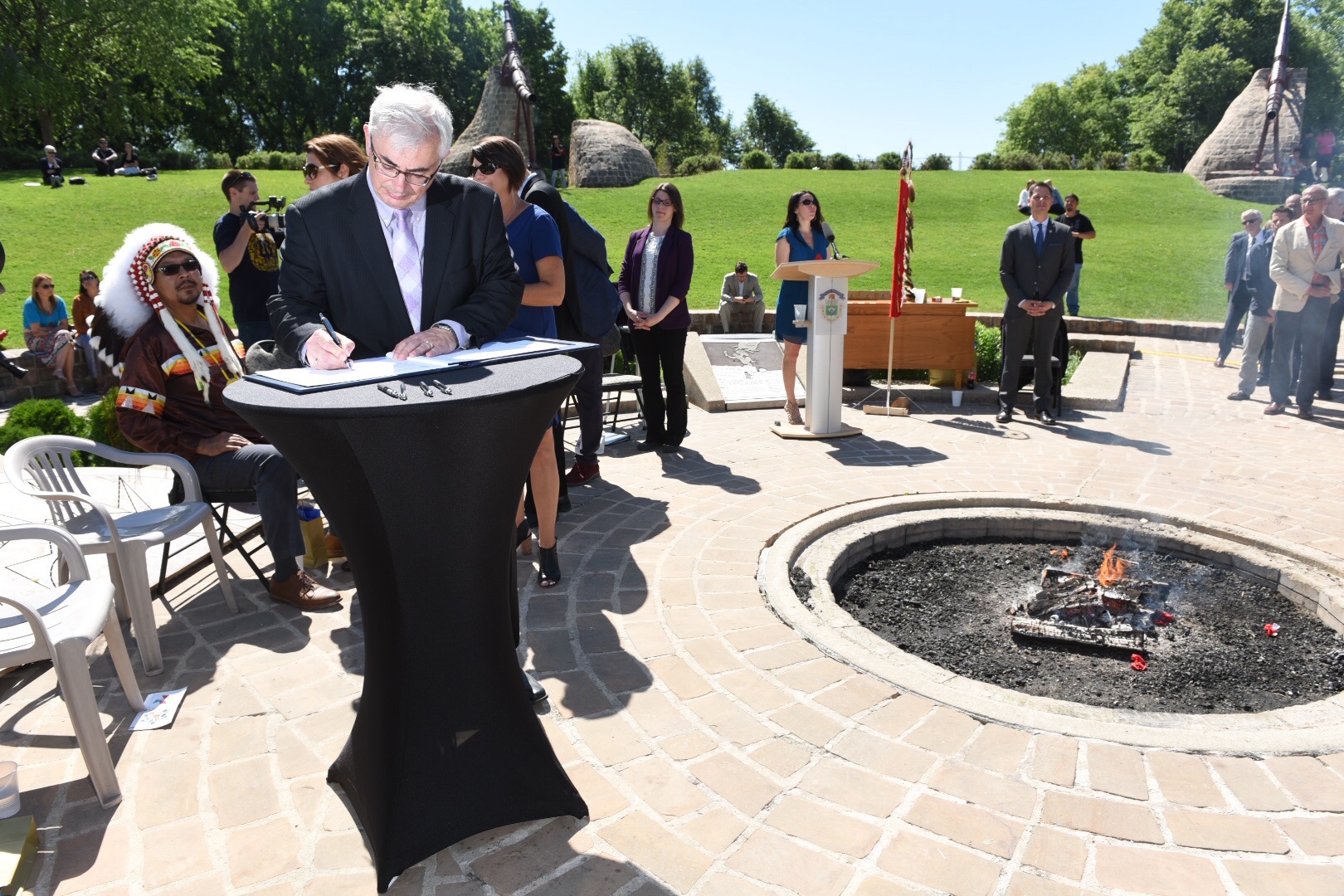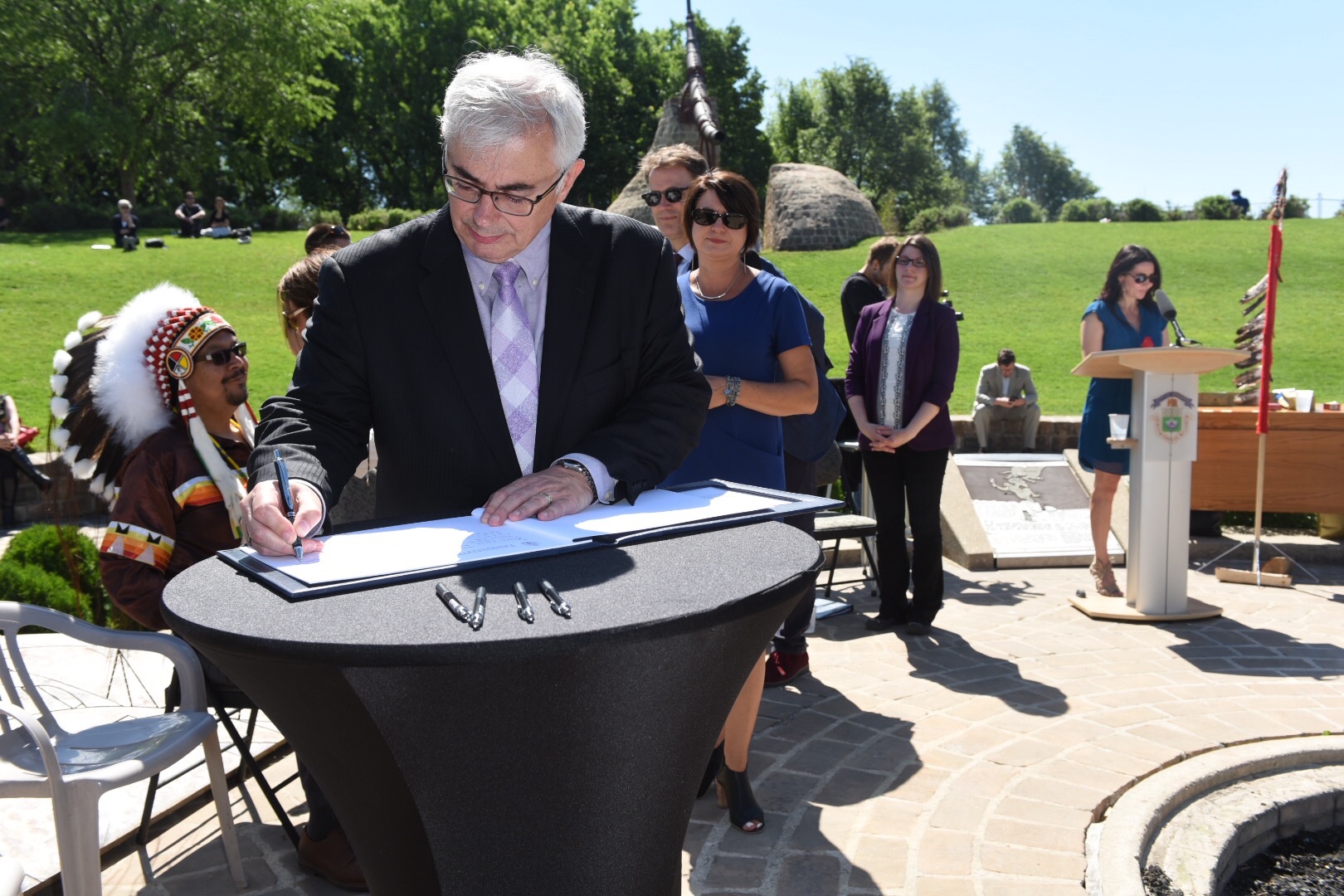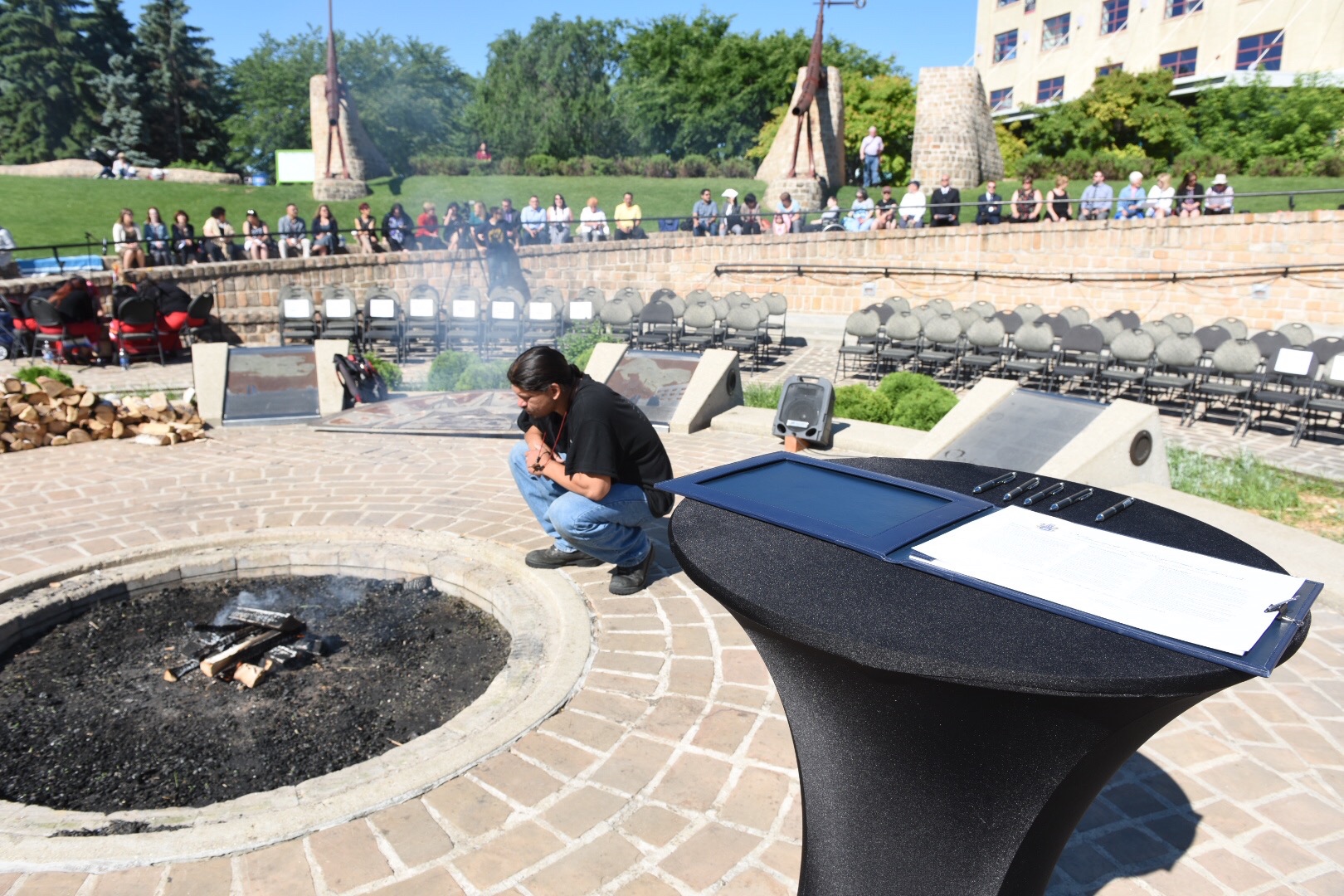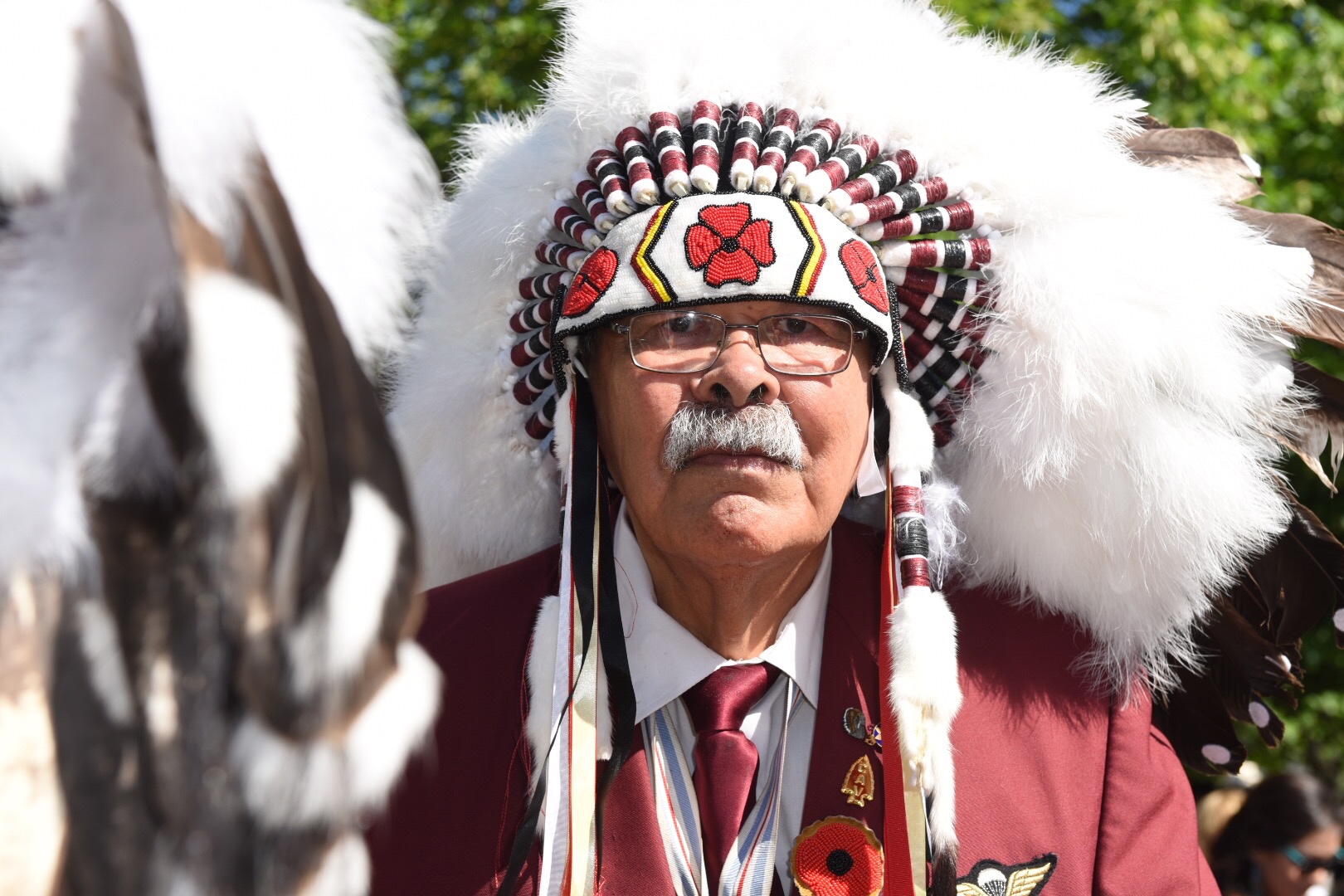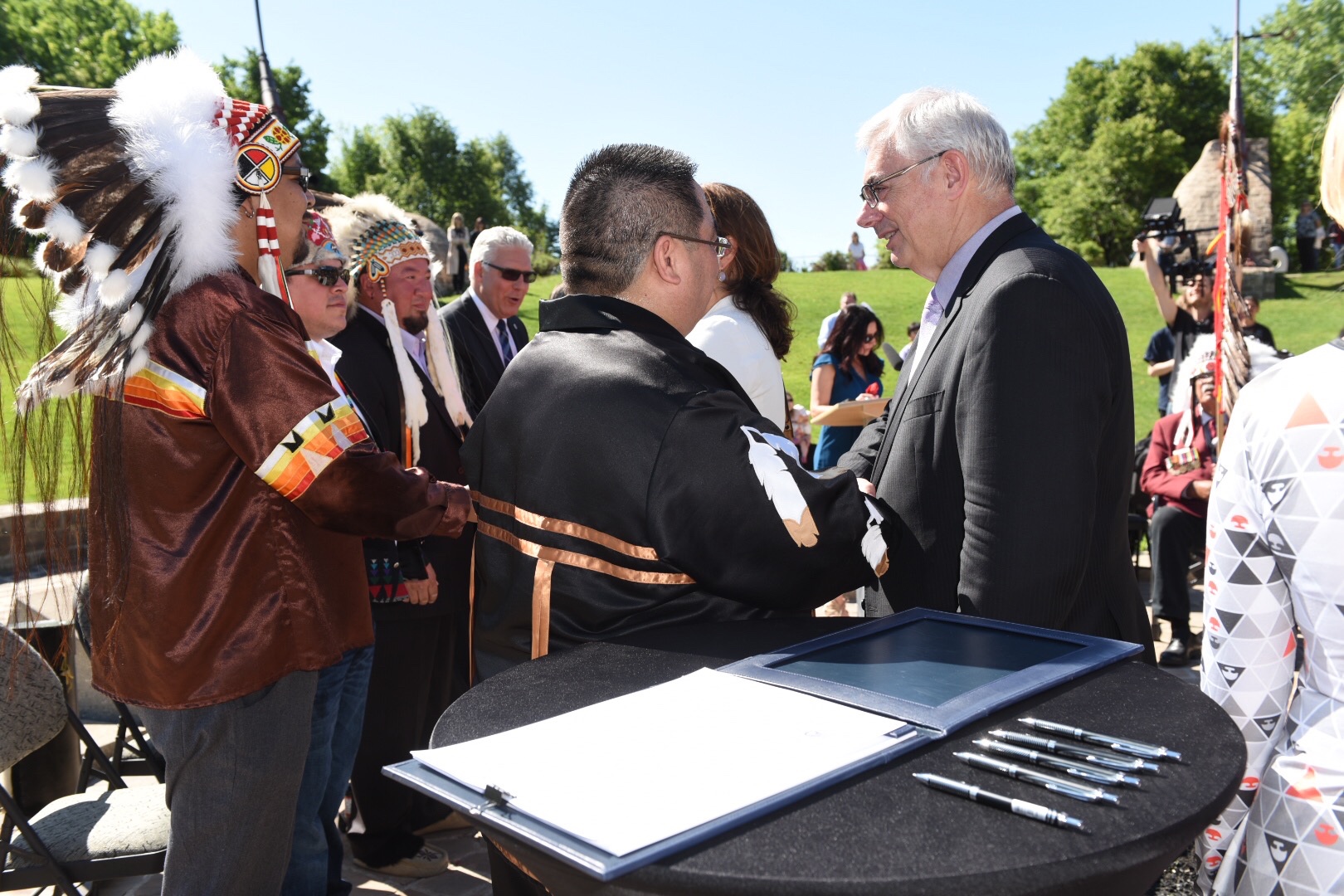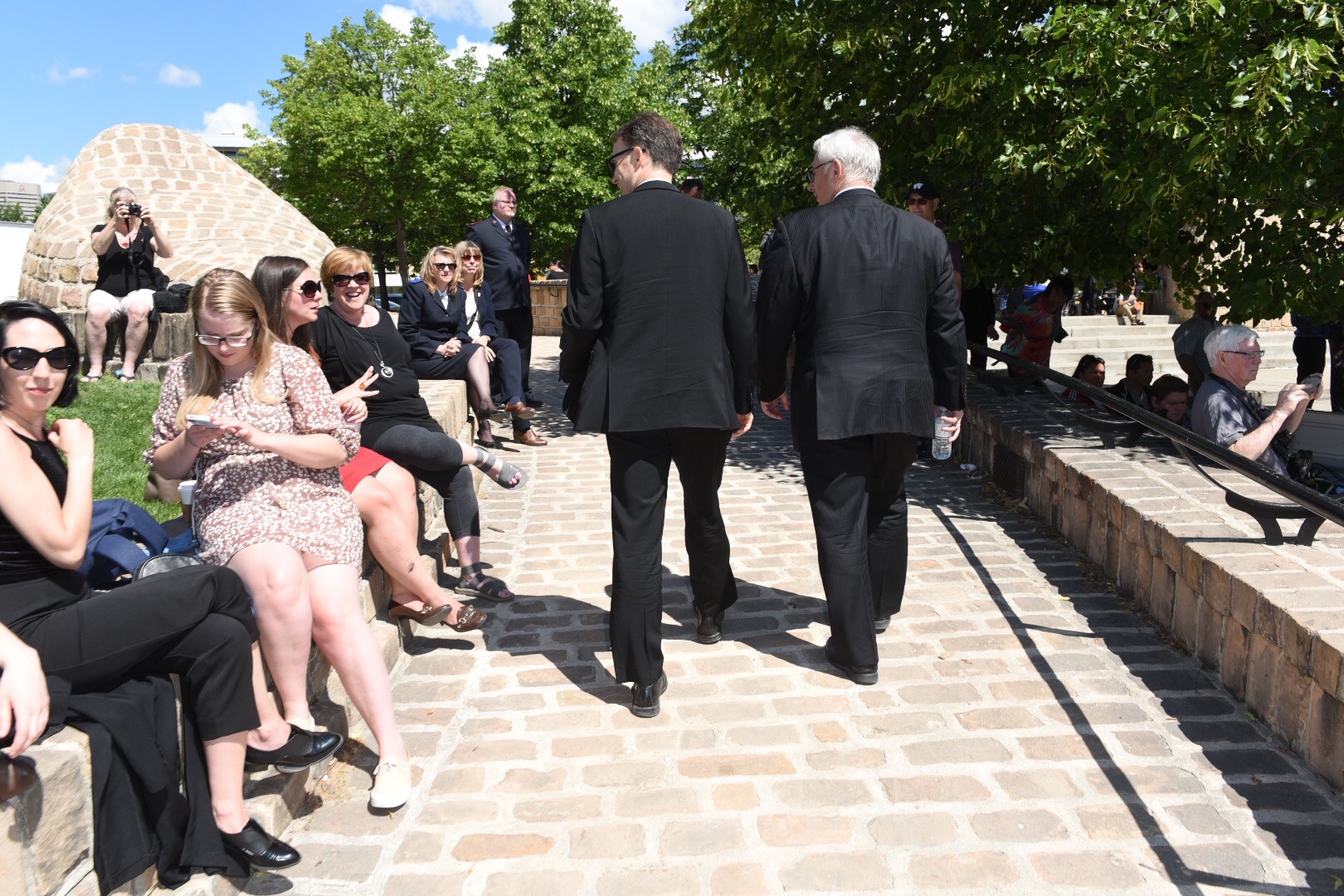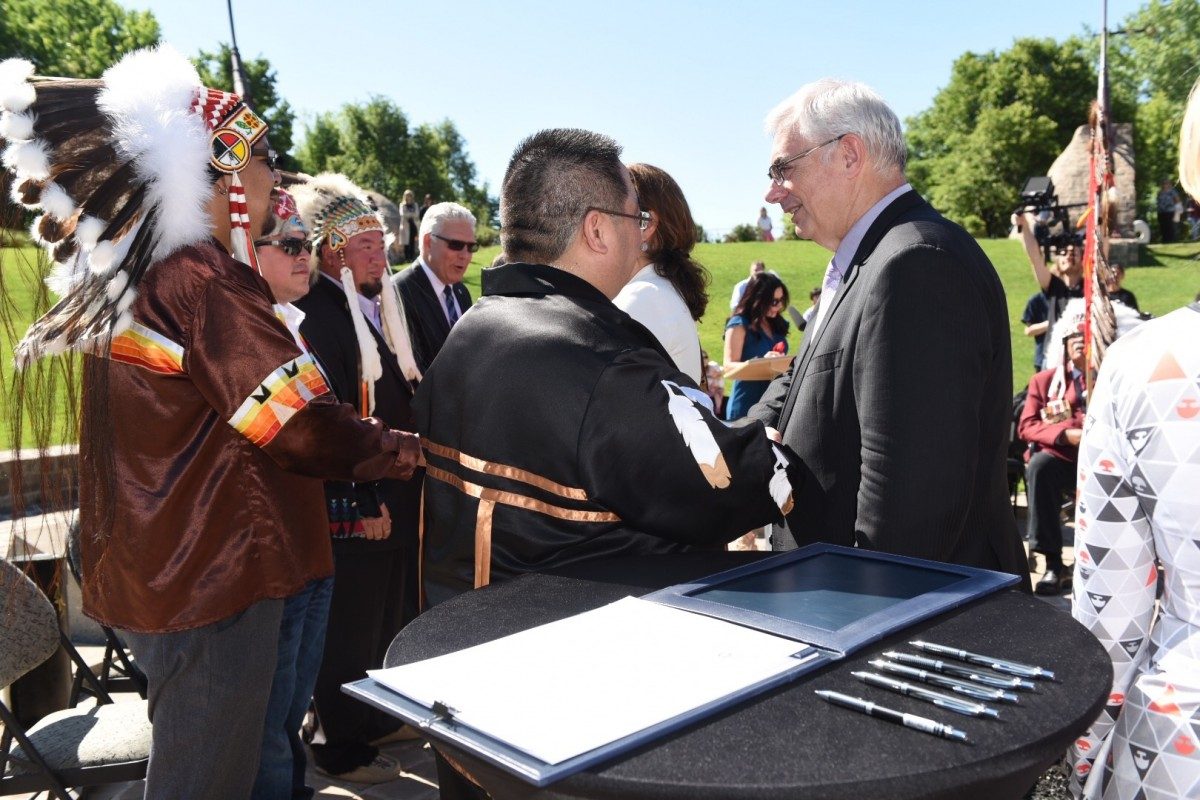
United to advance reconciliation
President Barnard signs the City of Winnipeg Indigenous Accord on behalf of the University of Manitoba
Yesterday, David Barnard, President and Vice-Chancellor joined Mayor Bowman and dozens of partners at the Oodena Celebration Circle at The Forks, where he signed the City of Winnipeg Indigenous Accord on behalf of the University of Manitoba.
Winnipeg Mayor, Brian Bowman’s vision for Winnipeg is one of peace and mutual respect. It was in this spirit that on March 22 of this year, the City of Winnipeg Council unanimously voted to adopt its Indigenous Accord as an act to move towards reconciliation.
“The University of Manitoba is honoured to be a partner to Winnipeg’s Indigenous Accord, and join with the Mayor and others in sharing our commitment to reconciliation,” said President Barnard. “As a partner, we are continuing to advance our Indigenous achievement goals, be responsive to the Truth and Reconciliation Commission of Canada’s calls to action, and move forward together with Indigenous communities in a spirit of reconciliation and collaboration.”
The Accord is aligned with the U of M’s Indigenous achievement goals as outlined in the university’s Strategic Plan 2015-2020, Taking Our Place, and with the vision that the University of Manitoba’s role in reconciliation and its commitment to Indigenous achievement are central to the kind of future the university seeks to create.
As a partner to the Accord, the university has established and committed to these goals:
By the first-year anniversary of the signing of the Accord (May 2018), the University of Manitoba will:
- Through a deliberate recruitment initiative, increase the number of Indigenous faculty who specialize in discipline areas that are relevant to the Canadian Indigenous experience by six.
- Make funds available to support projects that are relevant to Indigenous research and scholarship that will lead to the acquisition of external funding.
- Increase the amount of funds for bursaries and scholarships for Indigenous graduate students who may serve to support tri-council funded research.
By the second-year anniversary of the signing (May 2019), the University of Manitoba will:
- Over and above recruitment initiatives cited for year 1, continue to increase the number of Indigenous faculty by a similar amount.
- Reach the stated enrolment goal of 5% graduate students and thus improve the pool of research assistants who may support tri-council funded research.
The Rady Faculty of Health Sciences was also a signatory to the Accord. Dr. Catherine Cook, Vice Dean, Indigenous Health, and Head, Ongomiizwin, Indigenous Institute of Health and Healing signed on behalf of the faculty, and Dr. Marcia Anderson DeCoteau, Executive Director, Academic Affairs, Ongomiizwin, Indigenous Institute of Health and Healing signed the Accord as a member of the Mayor’s Indigenous Advisory Circle.
“I signed the Accord to make a public commitment to respond to the Calls to Action and to synergize our efforts with all of the other partners,” said Dr. Cook. “On June 2, the Rady Faculty of Health Sciences launched the Ongomiizwin Indigenous Institute of Health and Healing. We recognize that closing the gaps in health for Indigenous Peoples will require responding to all 94 Calls to Action, with collaborative action across all sectors of society and all levels of government.”
At the signing ceremony Bowman, a U of M alumnus [BA/96], expressed his optimism at the direction the city is heading.
“The Winnipeg Indigenous Accord is a gift of sharing and hope given by all the partners to help us make our city, once again, a meeting place which welcomes everyone,” said Bowman. “This Accord will help Winnipeg to keep moving forward by strengthening our relationships with First Nations, Métis and Inuit governments and organizations and peoples. We need the inspiration to confront the past with courage and move into the future with hope. My conviction is that the Winnipeg Indigenous Accord will create a kind of circle in which we have the ability to share, in which we gain inspiration and encouragement and continue on our path to Reconciliation.”
The ceremony began with a grand entry of Indigenous leaders and dignitaries serving as partners of the Accord. More than 80 initial partners walked in solidarity with the Indigenous communities in Winnipeg to encourage a better path forward. Among those who pledged to create and uphold an environment built upon respect, acceptance and kindness were Indigenous leaders, Elders and knowledge keepers, political and community leaders, business people and professionals, and youth leaders.
“It’s encouraging to witness so many different organizations from different sectors demonstrate their commitments to reconciliation in this way,” said Frank Deer, Acting Executive Lead for Indigenous Achievement who attended the signing ceremony. “The University of Manitoba will only stand to benefit from partnering with the City of Winnipeg and our shared vision for realizing change.”
According to the City of Winnipeg, the Indigenous Accord is one more step in the journey of reconciliation that the city of Winnipeg has embarked upon. It is a living document to guide a shared commitment in this journey, based on the Truth and Reconciliation Commission’s 94 calls to action. The partner guide for the Accord states that it is not a single event, rather an ongoing responsibility accepted by key individuals – and the communities they represent – who sign the Accord to report the success of their commitment and future goals for reconciliation every year.







